Credits: Ben Best, Andy Zawacki, Mike Darwin
Adapted from Source Document: http://www.docstoc.com/docs/88919930/Cryostat-Preparation—Cryonics-Institute
PURPOSE: To detail the procedures used for set-up and final preparation of Almax fiberglass-composite resin long-term patient care cryostats. This standard operating procedure (SOP) (aka Best Practices) details the vendors, materials and techniques used to prepare the Almax cryostats for full operational status after receipt from the manufacturer.
1.0. Detail of configuration and a brief overview of the manufacturing procedure used to produce cryostats.
Almax cryostats are cylindrical, double walled vessels that employ perlite and low vacuum (1-12 torr) insulation to facilitate highly efficient long-term liquid nitrogen refrigeration of cryopatients. Each unit has an overall height of 327.7 cm, an external diameter of 182.9 cm, an internal diameter of 121.9 cm and a useable internal height of 218.4 cm. The static liquid nitrogen capacity of Almax cryostats is approximately 2550 liters with a static boil-off rate in the range of 10.5 to 12.5 liters per day. Adult, human, whole body patient capacity is between 4 and 6 patients, depending upon patient diameter and the method of packaging used.
1.2. Engineering details are presented Figure 1.1-1.2.
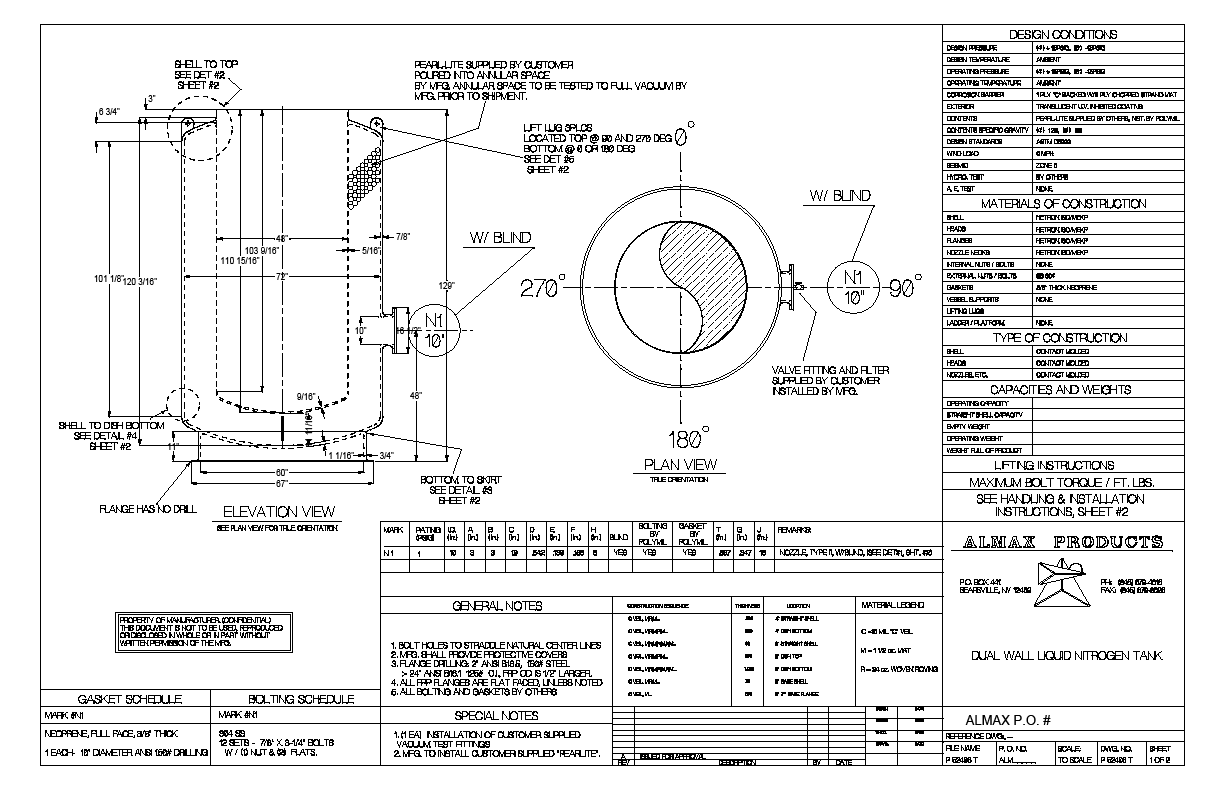 Figure 1.1: Detailed engineering specifications for the Almax long-term patient care Cryostats.
Figure 1.1: Detailed engineering specifications for the Almax long-term patient care Cryostats.
The cryostats are fabricated from a fibreglass mat-modified vinyl ester (Hetron 922, Ashland Chemical Co.) composite. The basic procedure for fabrication consists of building up layers of glass mat saturated with a resin monomer that is reinforced with carboxyl-terminated butadiene-acrylonitrile copolymer. The resin is polymerized (cured) using methyl ethyl ketone peroxide (2-butanone peroxide, or MEK-peroxide), which initiates free-radical cross-linkage of the monomer. This technique avoids incorporation of the MEK peroxide catalyst into the finished polymer, rendering it more stable, more corrosion resistant and less chemically reactive. Five millilitres of MEK peroxide are used per pound of Hetron 922. The inner vessel (can) of the cryostat is an open- topped cylinder with a concave bottom made from of vinyl ester resin and glass mat with a wall thickness of ~13 mm. The outer cylinder (can) is comprised of the same material, has a wall thickness of ~15 mm and is connected to the inner can only by a glue bond where the two are joined at the opening of the inner can on the top of the cryostat.
The opening of each cryostat is closed with a snug-fitting insulating neck-plug with an external cover of 14 gauge grade #2, 304 stainless steel. The insulating neck-plug is made from 22 layers of 2.5 cm thick Owens-Corning high density extruded polystyrene insulating foam board (~121.9 cm in diameter by 55.9 cm thick.) which are sandwiched between the stainless steel cover and an inner cover of painted chip board or marine plywood using 4 threaded nylon rods to compress and secure the foam to the inner and outer covers of the cryostat lid. A section of 5.1 cm diameter PVC plastic pipe penetrates the neck-plug and external cover in the center allowing access to the inside of the cryostat for temperature and liquid level monitoring.
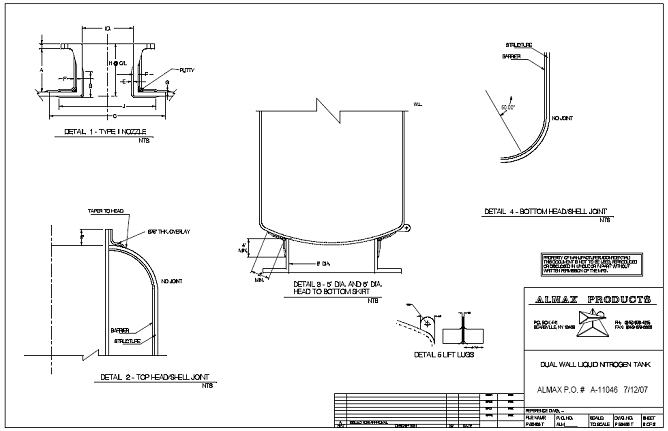 Figure 1.2: Detailed engineering specifications for the Almax long-term patient care cryostats.
Figure 1.2: Detailed engineering specifications for the Almax long-term patient care cryostats.
1.3. Cryostats are manufactured under contract with Almax Products, a company owned and operated by Bruce Alter, located in Bearsville, New York:
Almax Products Mailing address: Almax Products
363 Coldbrook Road P.O. Box 441
Bearsville, NY 12409 Bearsville, NY 12409
Phone: 845-679-4615 FAX: 845-679-8620 email: Almax441@aol.com
Almax subcontracts the work of building the cryostats shells to Polymil Products, (contacts Sam Yacuzzo and Tammy Shultz) of LeRoy, NY:
Polymil Products, Inc 585-768-8170
51 North Street
Leroy, NY 14482
Purchase price for 1 cryostat, ordered in May 2009 was $23,000 US, half payable on issuance of the purchase order and half payable by 45 days after delivery.
Perlite insulation is for the units is obtained from:
Noble Perlite 405-872-5660
312 W Chestnut
Noble, OK 73068-8545
On average, 70 thirty-pound bags of perlite are used by Almax in a preliminary filling of the annular space prior to shipment of the cryostat. An additional 14 bags of perlite are shipped with the unit and used to top-up the annular space after shipping; the perlite settles en route due to handling and movement of the cryostat. Cost per bag as of 16 May, 2009 was ~ $20 US, per bag, including wrapping and palletizing, in preparation for shipment.
Currently shipment is being arranged by Almax and charges for the last load of perlite were $__________ US.
The stainless steel cover for the cryostat is manufactured by:
Beck Industries, Inc.
24462 Sorrentino Court,
Clinton Township,MI, United States, 48035
(586) 790-4060 PHONE
(586) 790-4982 FAX
EMAIL: mbeck6@sbcglobal.net
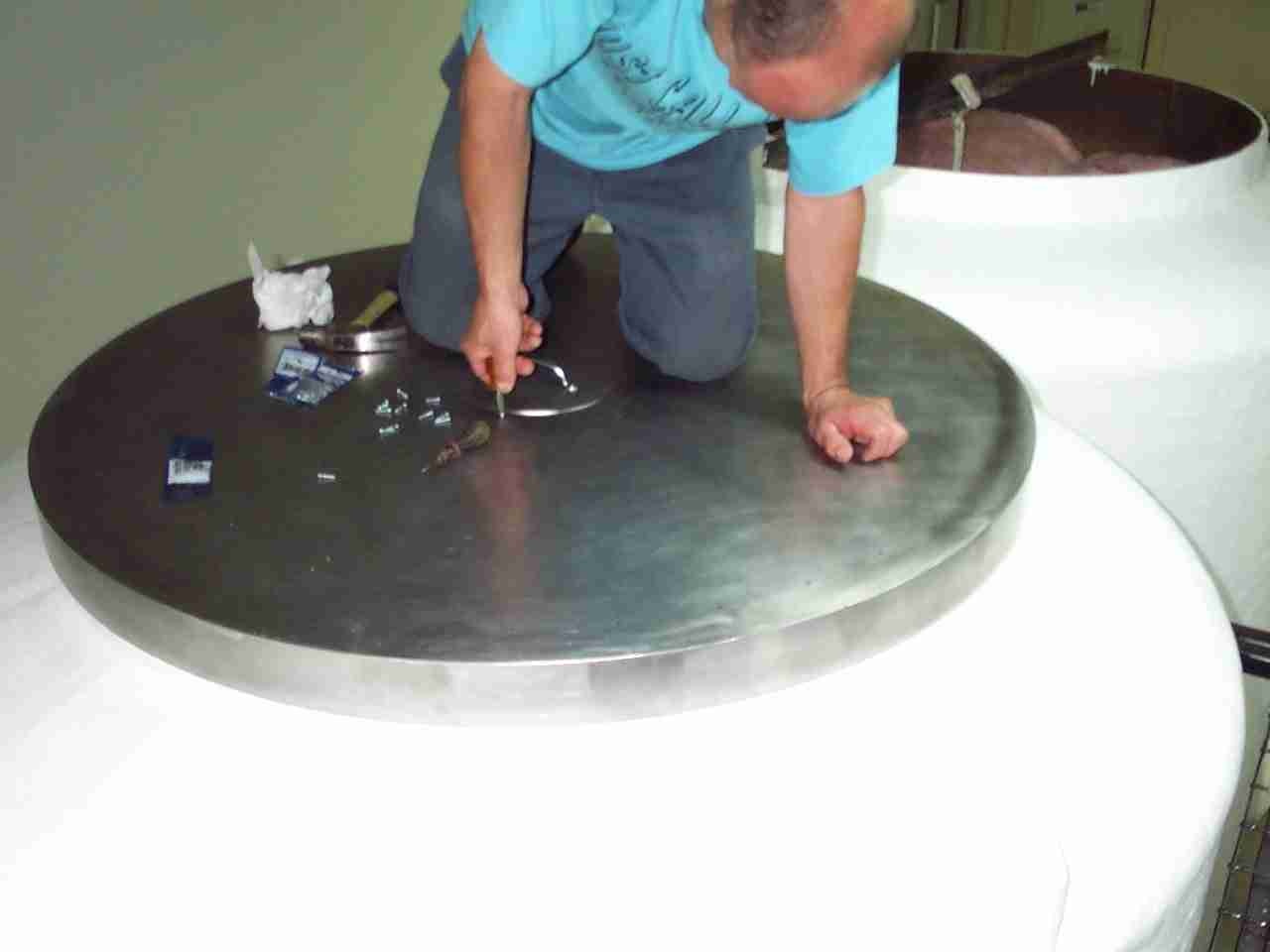 Figure 1.3: Stainless steel cryostat covers manufactured by Beck Industries, Clinton Township, MI.
Figure 1.3: Stainless steel cryostat covers manufactured by Beck Industries, Clinton Township, MI.
The covers are 127 cm in diameter x 7.6 cm deep with a 20.3 cm circular central access port cover. The cover has 1/8″ diameter holes at 116.8 cm bolt circle, 22.9 cm bolt pattern with 1/8″ screw holes and 7.6 cm sides which are skip welded around the 127 diameter of the cover. The covers are fabricated from 14 gauge, grade #2, 304 stainless steel.
Price is $860.00 US per cover. Charge for palletizing and shipping to Bearsville, NY is $200.00 US.
TOTAL PRICE $_________ US
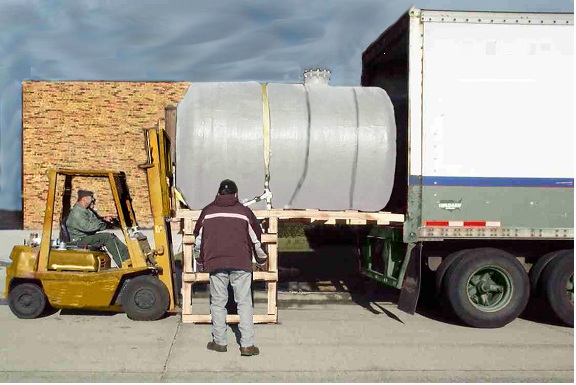 Figure 1.4: Removal of cryostat from shipping vehicle/container.
Figure 1.4: Removal of cryostat from shipping vehicle/container.
1.4 Atmospheric air is withdrawn from the annular space of the cryostat in order to create a vacuum in two stages. The first stage employs a roughing pump which is capable of reducing pressure in the annulus to ~ 5 x 10-2 torr, however it will only be necessary to achieve a stable vacuum of ~ 500 torr before switching to the polishing/ maintenance vacuum pump. The roughing pump used is in an Alcatel ACP-15, 8.2 cubic ft/min with a peak pumping speed of 14 m3 /hr and a final vacuum capacity of 5 x 10-2 torr. The ACP-15 employs Roots blower technology. Roots pumps are positive displacement machines using two synchronized rotors rotating in opposite directions. The rotors feature profiles usually shaped like the figure 8.During the rotation, molecules of gas are isolated between the lobes and the stator and then led to the exhaust side of the pump without variation of volume.
Figure 1.5: Alcatel ACP-15 roughing pump.
The ACP-15 features a frictionless pumping module that is optimized for operation without internal lubrication. Complete technical specifications, operation and servicing instructions for the ACP-15 are present as Appendix 1 to this SOP.
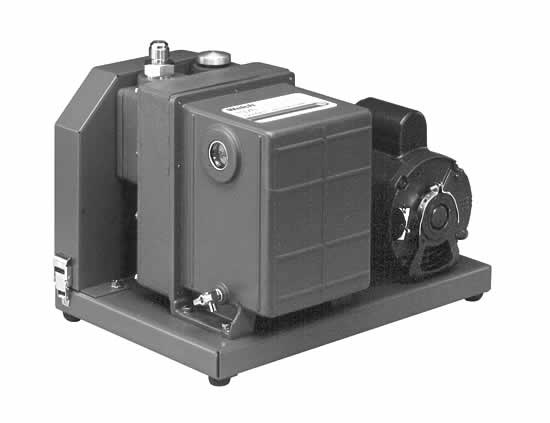 Figure 1.6: Welch 1376C-03, DUOSEAL®, two-stage, belt drive high vacuum pump.
Figure 1.6: Welch 1376C-03, DUOSEAL®, two-stage, belt drive high vacuum pump.
Final ‘polishing’ evacuation of the cryostat annulus as well as maintenance of the vacuum, is achieved using a Welch 1376C-03,DUOSEAL®, two-stage, belt drive high vacuum pump. The Welch pump has a peak pumping capacity of 300 LPM (10.6 CFM) with a final achievable vacuum of 1 x10-4 torr. The Welch pump motor is configured to operate on 220V, 50 Hz,1 PH and is supplied with Schuko plug which must be replaced with a ____________ plug prior to be being placed into service.
Complete technical specifications, operating and servicing instructions for the Welch Welch 1376C-03,DUOSEAL® pump are present as Appendix II to this SOP.
2.0. Shipment and unloading of the cryostat.
2.1. The cryostats is palletized and prepared for shipment via commercial freighter in a sea-land container. It is then shipped, either by semi-trailer, or by truck, within the sea-land container, on wooden skids (generally skids of very poor quality). Drag chains are placed around the skids and they are pulled to the end of the trailer. Then they are pulled out further with the forklift so that the rear end of the skid rests firmly on the trailer and the opposite end of the skid is then lowered to rest on a wooden support frame so that the pallet holding the cryostat can be can be picked-up from the side with the forklift, removed from the truck and moved into the facility where the cryostat is placed on custom made steel frame castered trolley for additional preparation, prior to placement into service.
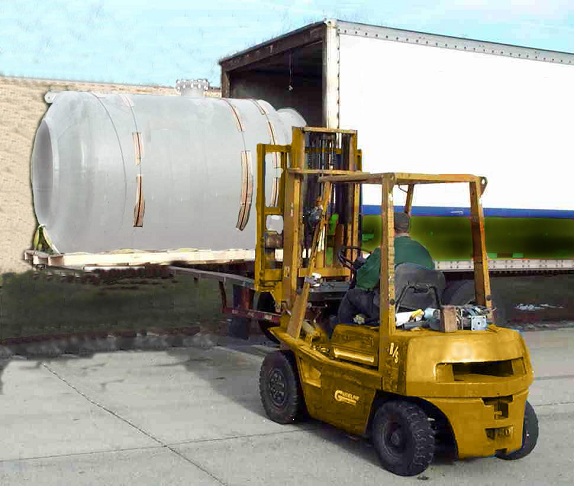 Figure 2.2: The forklift is repositioned at the side of the cryostat/pallet and the unit is removed from the vehicle and placed on the ground..
Figure 2.2: The forklift is repositioned at the side of the cryostat/pallet and the unit is removed from the vehicle and placed on the ground..
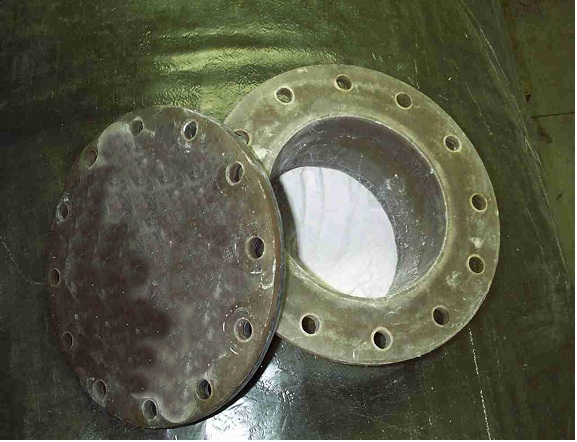 Figure 2.3: The evacuation port cover plate used to hold perlite in place and prevent contamination of the perlite with moisture during shipping is unbolted and removed.
Figure 2.3: The evacuation port cover plate used to hold perlite in place and prevent contamination of the perlite with moisture during shipping is unbolted and removed.
Table 2.1: Equipment, Tools and Supplies Required to Remove Cryostats from Delivery Vehicle
| Item Description | Quantity & Specifications |
| Steel drag chain | Promac WD-113 or higher: http://www.promacusa.com/pdfs/PWStlDrag08.pdf |
| S- hooks | 2,500 kg load (minimum) |
| Wooden support frame | 10.2 cm x 10.2 cm x X cm X cm X cm |
| Snug fitting pig skin leather work gloves | Size required by personnel |
| Forklift with long tines | 5,000 kg load capacity |
| Metal shears | To cut securing tie bands |
2.2. The cryostat is shipped from the manufacturer with a resin-composite cover plate and sealing gasket secured to the evacuation port opening of the unit with 12 bolts (Figure 1.3). This cover plate serves both to contain the perlite insulation material and keep it dry during shipment. Perlite is moderately hygroscopic and will absorb water from the atmosphere in high humidity environments. Once the cryostat is in the storage facility, the cover plate is unbolted and the cover plate and the neoprene rubber gasket that seals it to the evacuation port flange are removed and set aside. The evacuation port opening is then immediately covered with a heavy-duty, 3 mil plastic refuse bag that is tightly secured in place with a ratchet-type nylon tie-down strap. It is important to immediately and tightly cover this opening to prevent moisture from entering the annular space and contaminating the perlite, since this would make subsequent evacuation of the annulus difficult, or impossible.
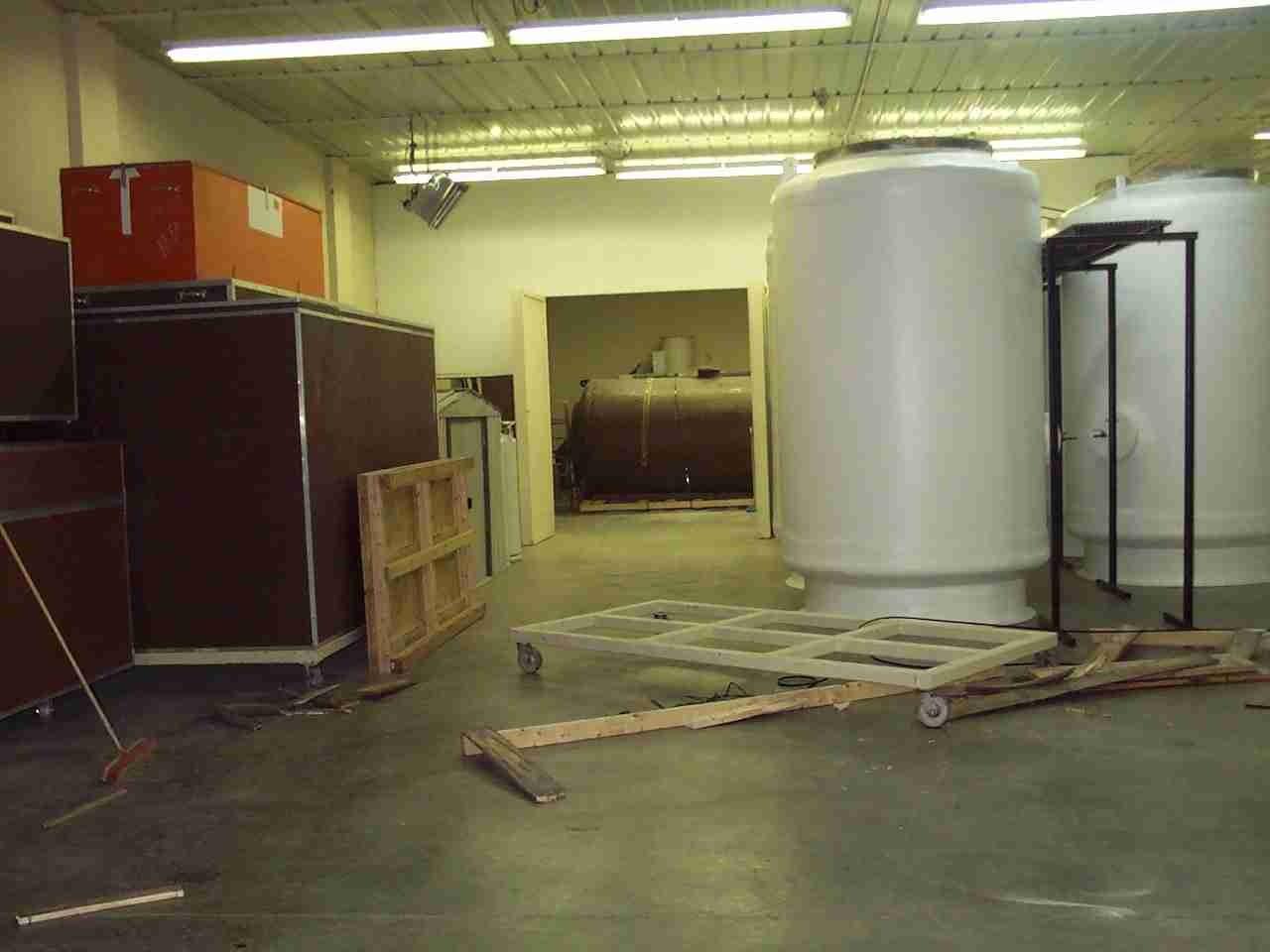 Figure 2.4: A custom built trolley fabricated from powder coated welded steel tube stock and high quality 3″ diameter urethane casters is used to safely move the cryostat around the facility in the horizontal position during post -manufacturing preparation. Wooden skids are used to protect the cryostat from damage by the steel frame of the trolley.
Figure 2.4: A custom built trolley fabricated from powder coated welded steel tube stock and high quality 3″ diameter urethane casters is used to safely move the cryostat around the facility in the horizontal position during post -manufacturing preparation. Wooden skids are used to protect the cryostat from damage by the steel frame of the trolley.
2.3. The cryostat is transported to the work-area at the facility by placing it on a custom built metal trolley. The unit is left on the trolley until all preparative work (prior to hoisting the unit into the upright position) is completed.
3.0 Topping up the cryostat with perlite.
3.1 Protective clothing consisting of a heavy-duty, hooded Tyvek work coverall, fabric reinforced vinyl gloves and a full face N-100 respirator are donned. Duct tape is used to secure the hood opening of the of Tyvek suit to the edges of the respirator, the sleeves of the Tyvek suit to the work gloves and the tops of the work boots to the leggings of the Tyvek coverall, as shown in Figure 3.1, below. It is important to achieve a seal at all joints in the protective clothing in order to prevent the highly irritating perlite dust from contaminating the worker’s skin.
3.2 The plastic bag covering the evacuation port is removed and perlite is poured from the bags into the evacuation port opening as shown in Figure 3.2. The perlite is spread out inside the annular space and packed tight with wooden spreading and tamping paddles that are made in-house, as shown in Figure 3.3, below. Considerable force is required to tamp the perlite solidly into place, and typically the full weight of the worker must be brought to bear on the tamping paddle.
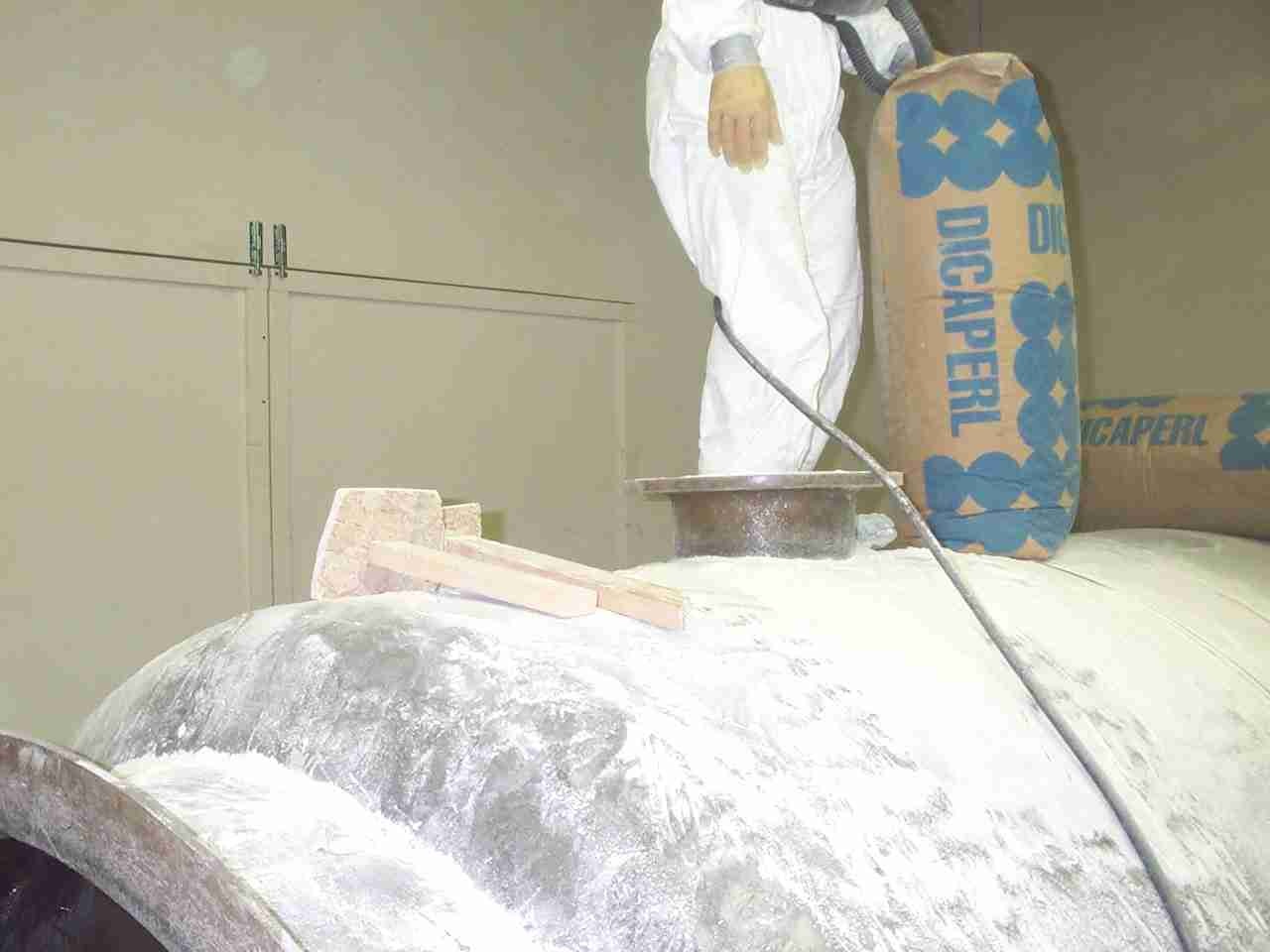 Figure 3.1: Duct tape is used to secure and seal the respirator, gloves and boots to the protective Tyvek coverall in order to prevent perlite dust from coming into contact with the workers’ skin. An full-face N-100 respirator is to provide respiratory protection from the perlite dust. Note perlite spreading and tamping tools resting on the cryostat at the middle left of the photo.
Figure 3.1: Duct tape is used to secure and seal the respirator, gloves and boots to the protective Tyvek coverall in order to prevent perlite dust from coming into contact with the workers’ skin. An full-face N-100 respirator is to provide respiratory protection from the perlite dust. Note perlite spreading and tamping tools resting on the cryostat at the middle left of the photo.
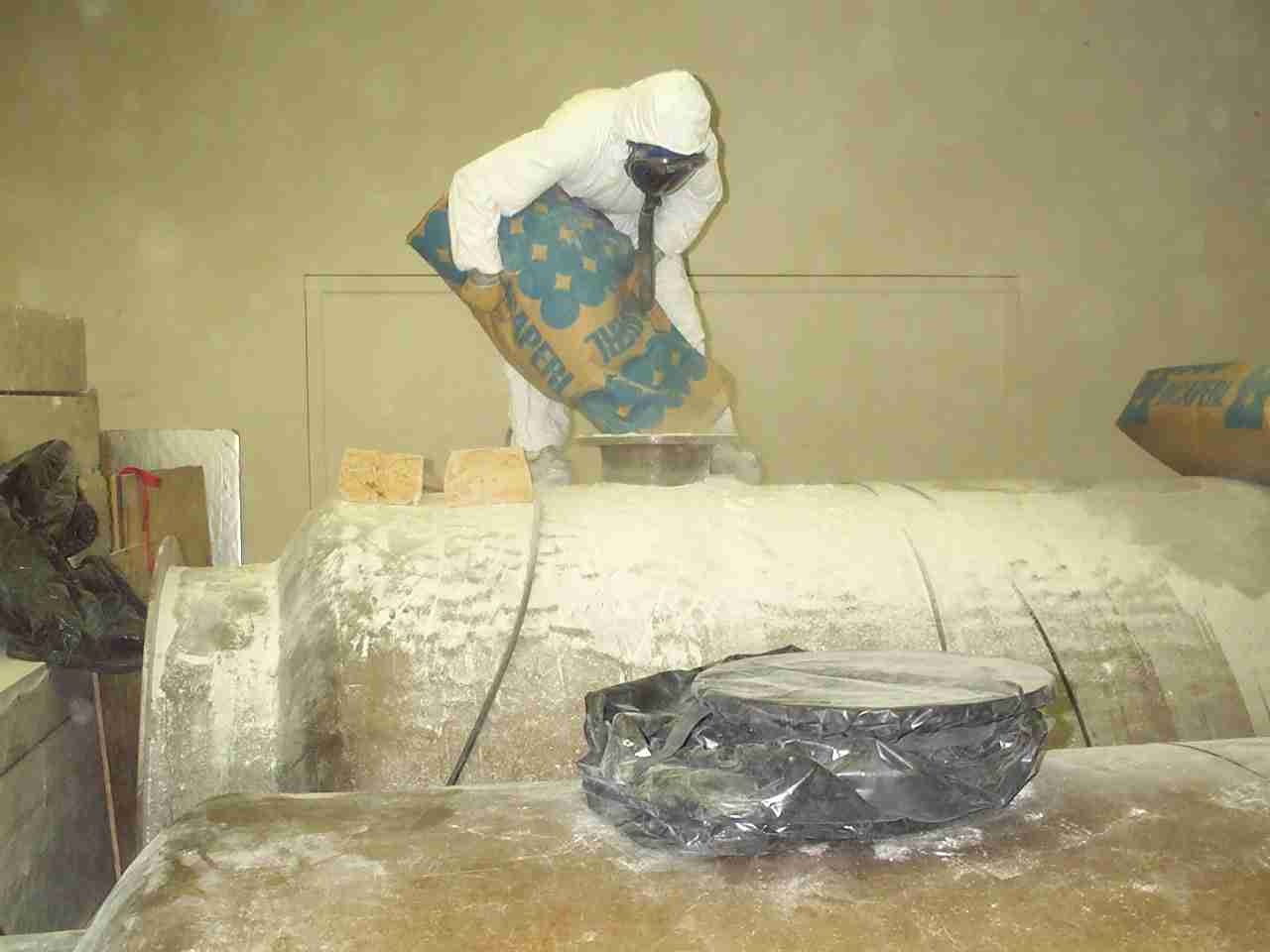 Figure 3.2: Perlite is poured from the 20 lb bags into the cryostat annular space with the workman standing atop the cryostat.
Figure 3.2: Perlite is poured from the 20 lb bags into the cryostat annular space with the workman standing atop the cryostat.
Figure 3.3: A spreading and tamping tool are fabricated from plywood and a 24 x 24 x 61 cm piece of lumber (which serves as the handle). The spreading tool has the handle offset to one side of the plywood plate, while the tamping tool has the handle secured to the center of the plate allowing for stability and even distribution of load when compressing the perlite. The handles are secured to the plywood plates using 1/4″ by 3″ wood screws reinforced with quick-set epoxy adhesive.
Figure 3.5: Perlite is tamped into place in the annulus of the cryostat using the wooden tamping tool.
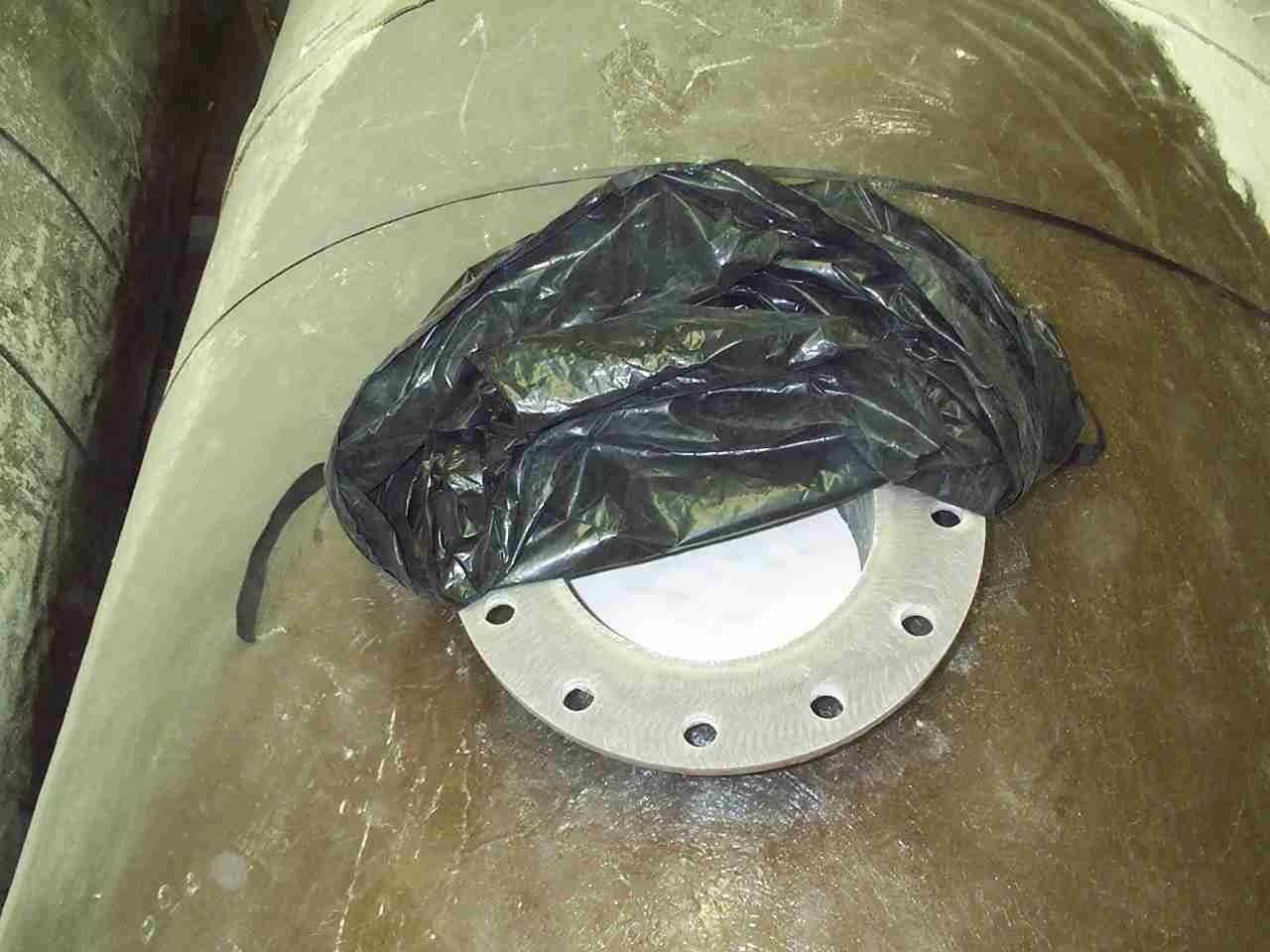 Figure 3.6: When the annular space is filled with packed perlite to the level of the bottom of the evacuation port no additional perlite is added and the top of the cryostat is brushed off with a household broom.
Figure 3.6: When the annular space is filled with packed perlite to the level of the bottom of the evacuation port no additional perlite is added and the top of the cryostat is brushed off with a household broom.
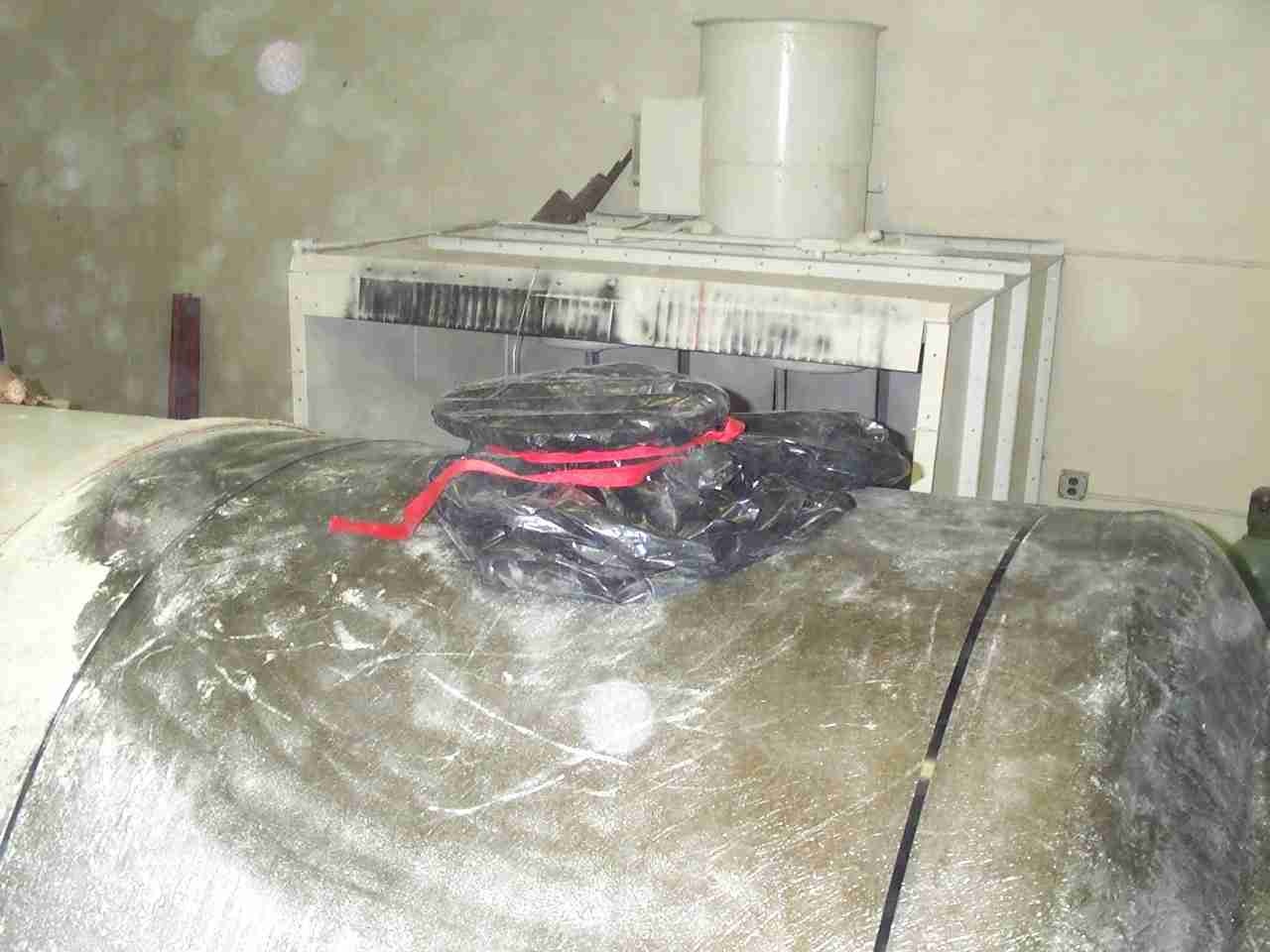 Figure 3.7: The evacuation port is again tightly covered with a plastic bag to prevent entry of water vapor into the annular space.
Figure 3.7: The evacuation port is again tightly covered with a plastic bag to prevent entry of water vapor into the annular space.
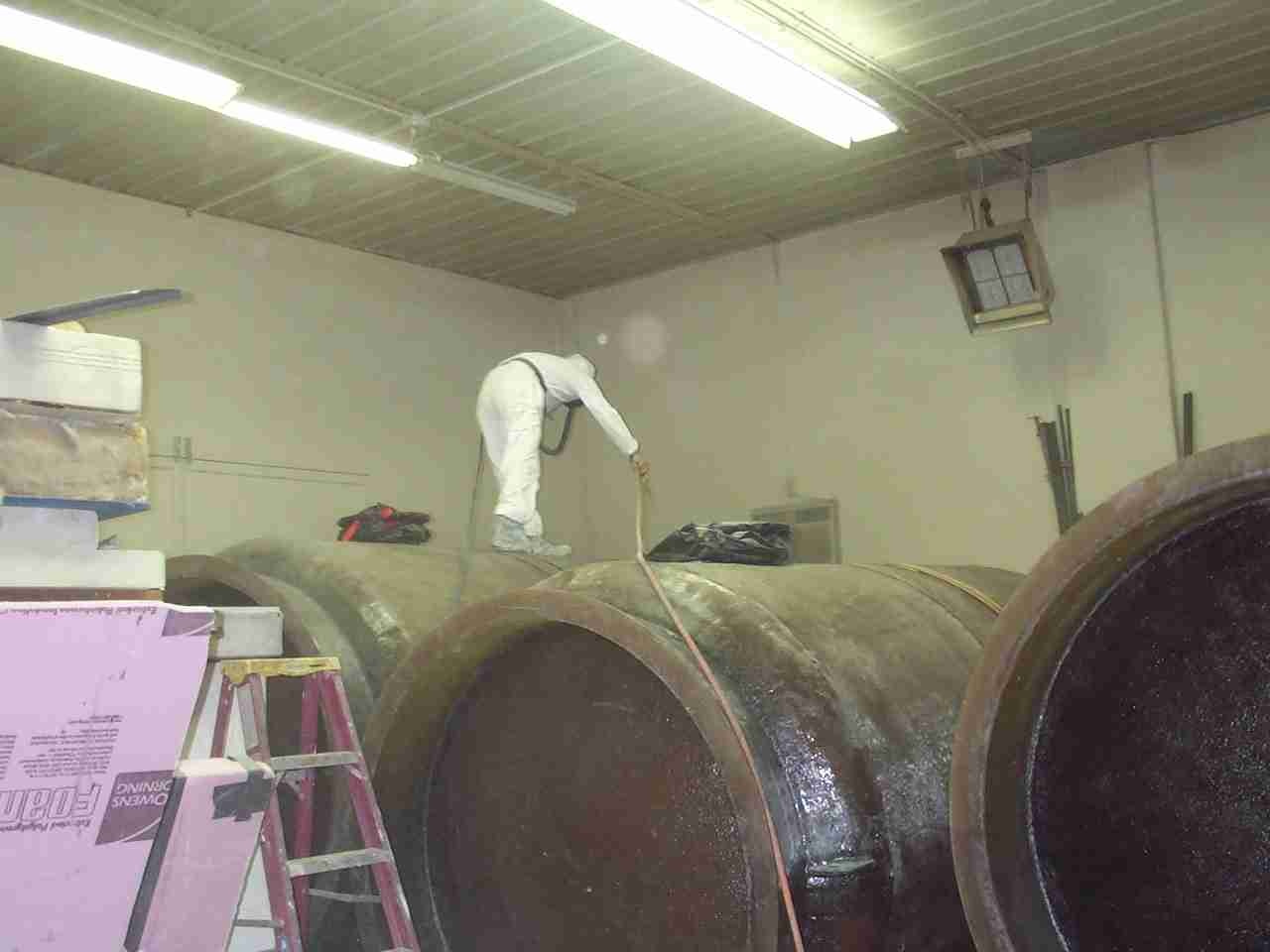 Figure 3.8: A jet of compressed air is used to clean the perlite dust off of the cryostat.
Figure 3.8: A jet of compressed air is used to clean the perlite dust off of the cryostat.
4.0. Preparation of the evacuation port and evacuation valve assembly.
The first step in preparing the evacuation plumbing assembly is to sweat solder a 27 cm long x 3/4″ piece of copper onto a 3/4″ NPT Stainless Steel Ball Valve Full Port WOG1000 SS304 SUS304 0.75 .75 Female Ports.
Assemble the tools and supplies required for sweating the section of pipe into the valve. Prepare the copper pipe by sanding both ends using fine grit sand paper. Apply solder paste to the end to be sweated to the ball valve and insert the pipe into the 3/4″ copper T-connector. Don gloves and heat the copper pipe and connector with the torch for approximately 30 seconds. Apply solder by touching a J-shaped piece of solder to the joint 7 times; the solder will be drawn into the joint between the pipe and connector by capillary action. If the metal is not hot enough, reheat it with the torch as necessary. Allow the solder to cool and set-up for 60 seconds and then wipe the joint clean with a shop towel. Any remaining excess solder may be removed with a wire brush.
The threaded copper NPT to pipe slip fitting is then attached to the vacuum shut-off valve using Teflon thread sealing tape to insure a gas-tight seal.
Table 4.1 Tools and Supplies Required for Sweating Joints in Copper Pipe
| Item Description | Quantity |
| Copper Pipe | 1 ea 3/4″ x 27.9 cm |
| Pipe cutter | 1 ea |
| Pipe cleaner & de-burrer | 1 ea |
| Solder paste | 1 tube, 3 ounces |
| Solder | Silver solder (non rosin core) |
| Mapp gas or propane gas torch | 1 ea |
| Gloves | 1 pair, close-fitting work gloves |
| Teflon plumber’s sealing tape | 1 roll |
Figure 4.1: A section of copper pipe is sweat-soldered into the female end of a brass NPT connector which is then screw threaded into a ball type shut off valve using Teflon pipe joint sealing tape.
The valve and pipe assembly are then attached to the evacuation port cover plate by drilling a hole just large enough to admit the copper pipe in the center of the 41.9 cm diameter cover plate. It is important that the hole be a tight fit to the valve and pipe assembly so that the pipe can be securely cemented into place without any possibility of leaks (there must be a gas-tight seal). The copper pipe is prepared for cementing into place by sanding with fine grit sand paper, after which it is degreased using acetone and a clean rag (or lint-less disposable shop towel). The end of the pipe to be attached to the evacuation port cover is then painted with Special Blend MFR-10 lb laminating resin (low volatile organ compound, mixed 100 to1 with methyl ethyl ketone (MEK) peroxide (supplied by Michigan Fiberglass Sales, St. Claire Shores, MI) and the pipe is inserted into the previously drilled hole. Additional coats of laminating resin and glass mat, as needed, are used to secure the evacuation pipe in place, with care being taken to ensure that the pipe opening remains clean and unobstructed by resin. Each coat of applied resin is allowed to fully cure before the next coat is applied.
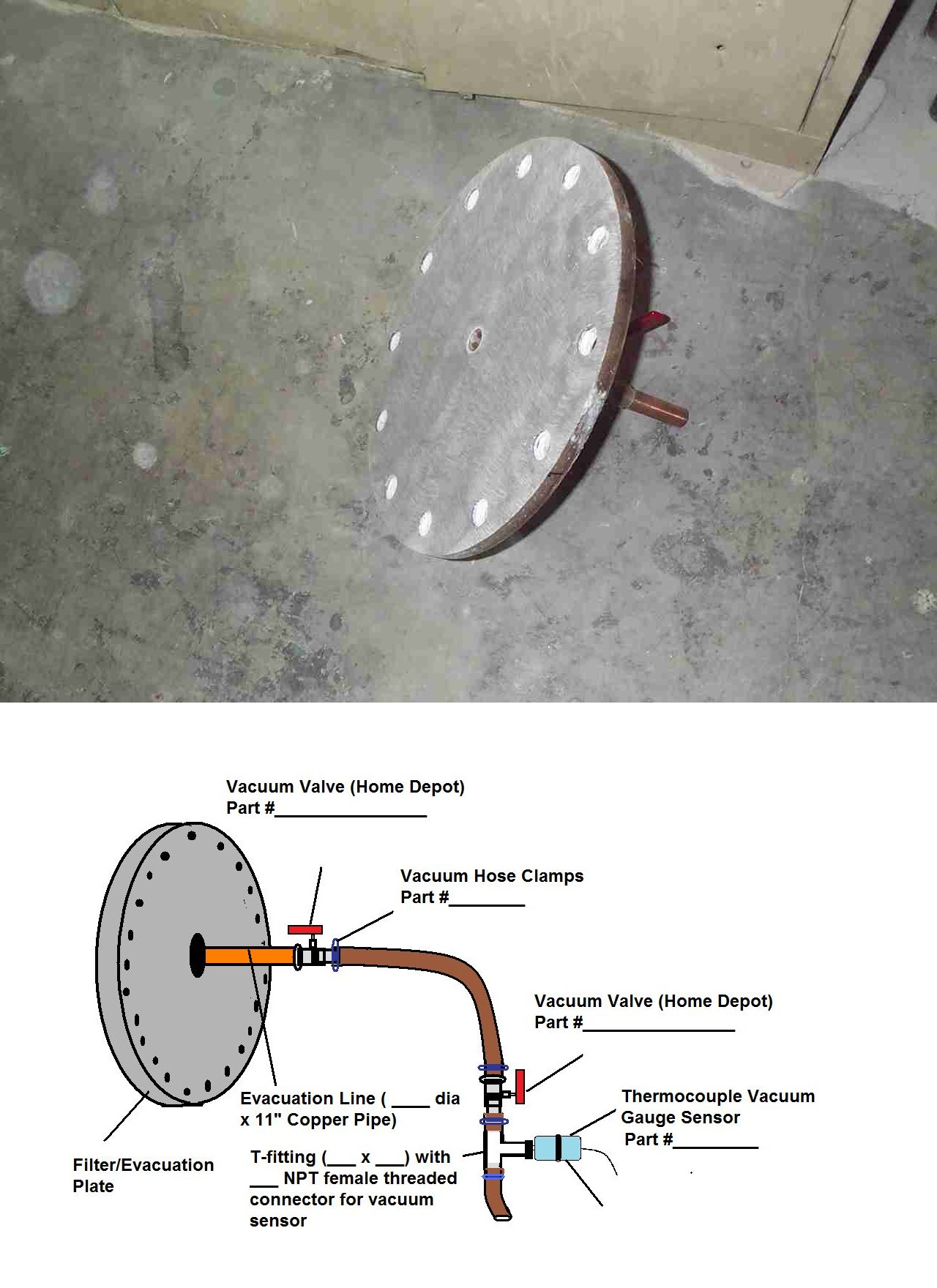 Figure 4.2: Top: the evacuation port cover plate with the stub of copper pipe to which the vacuum valve will be attached already in position. Bottom: schematic of the evacuation port, vacuum valve and T assembly housing the thermocouple vacuum gauge.
Figure 4.2: Top: the evacuation port cover plate with the stub of copper pipe to which the vacuum valve will be attached already in position. Bottom: schematic of the evacuation port, vacuum valve and T assembly housing the thermocouple vacuum gauge.
The back of evacuation port cover plate and the tip of the copper evacuation pipe assembly is then prepared for bonding to the flange of the evacuation port by being sanded with fine grit sandpaper. Once the plate has been “roughed-up” so that the adhesive epoxy will adhere, it is blown clean of particulates with a jet of compressed air, and then wiped with a clean rag dampened with acetone. Seven 6”x6” squares of cotton batting for filtration are painted with special blend MFR-10 lb laminating resin, low V.O.C. mixed 100/1 with MEK Peroxide (both from Michigan Fiber Glass Sales, St. Claire Shores) for hardening and adhesion.
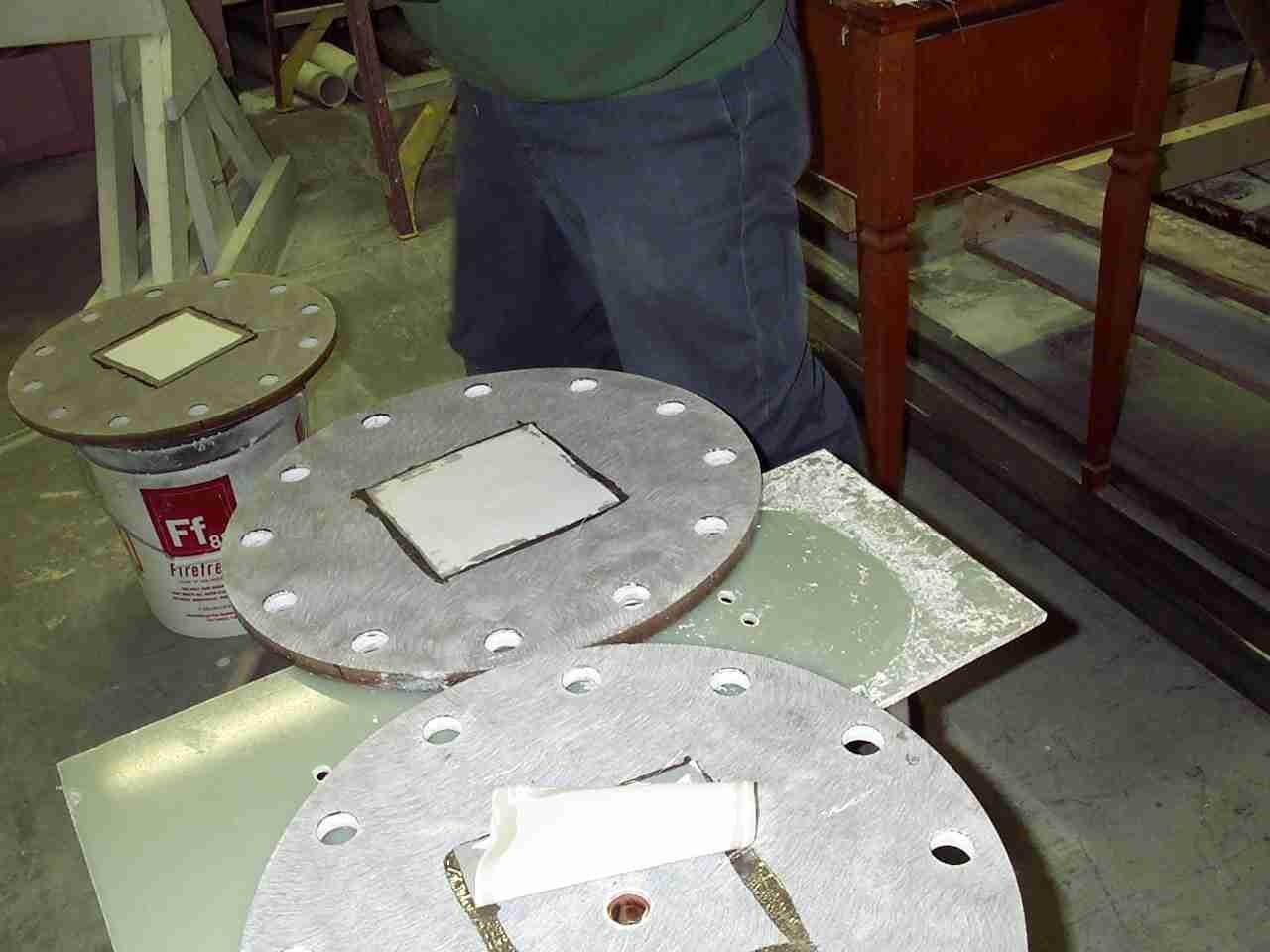 Figure 4.3: Cotton batting filter pads are shown being cemented in place on back of evacuation port cover plate.
Figure 4.3: Cotton batting filter pads are shown being cemented in place on back of evacuation port cover plate.
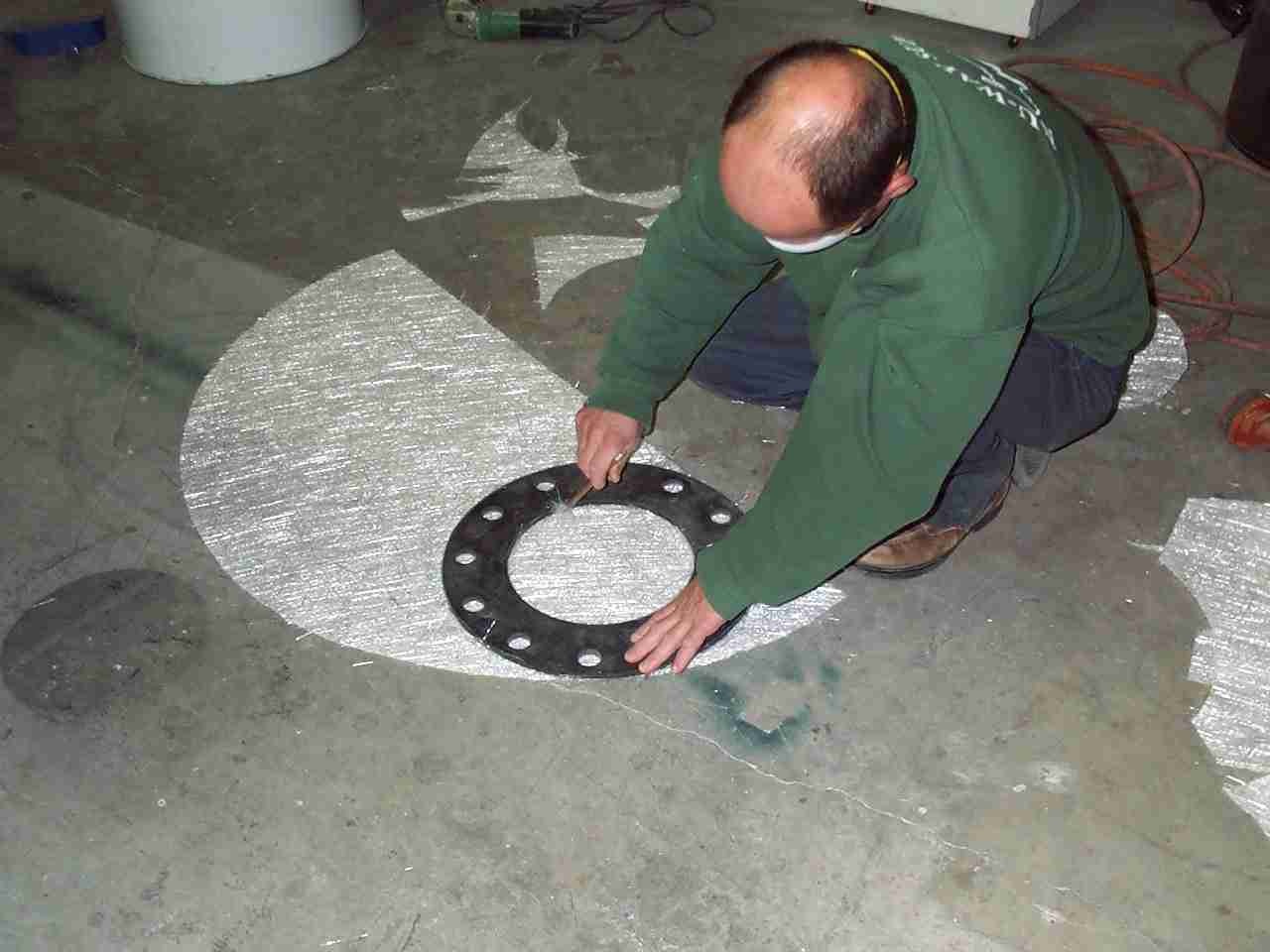 Figure 4.4.: The edges of the cotton bats are saturated with adhesive resin and smoothed onto the back of evacuation port cover plate.
Figure 4.4.: The edges of the cotton bats are saturated with adhesive resin and smoothed onto the back of evacuation port cover plate.
The neoprene rubber gaskets that were between the evacuation port cover plates and the evacuation port flanges during shipment from Almax are used as templates for cutting the 3/4 ounce chopped strand FG-03438 fiberglass cloth rings.
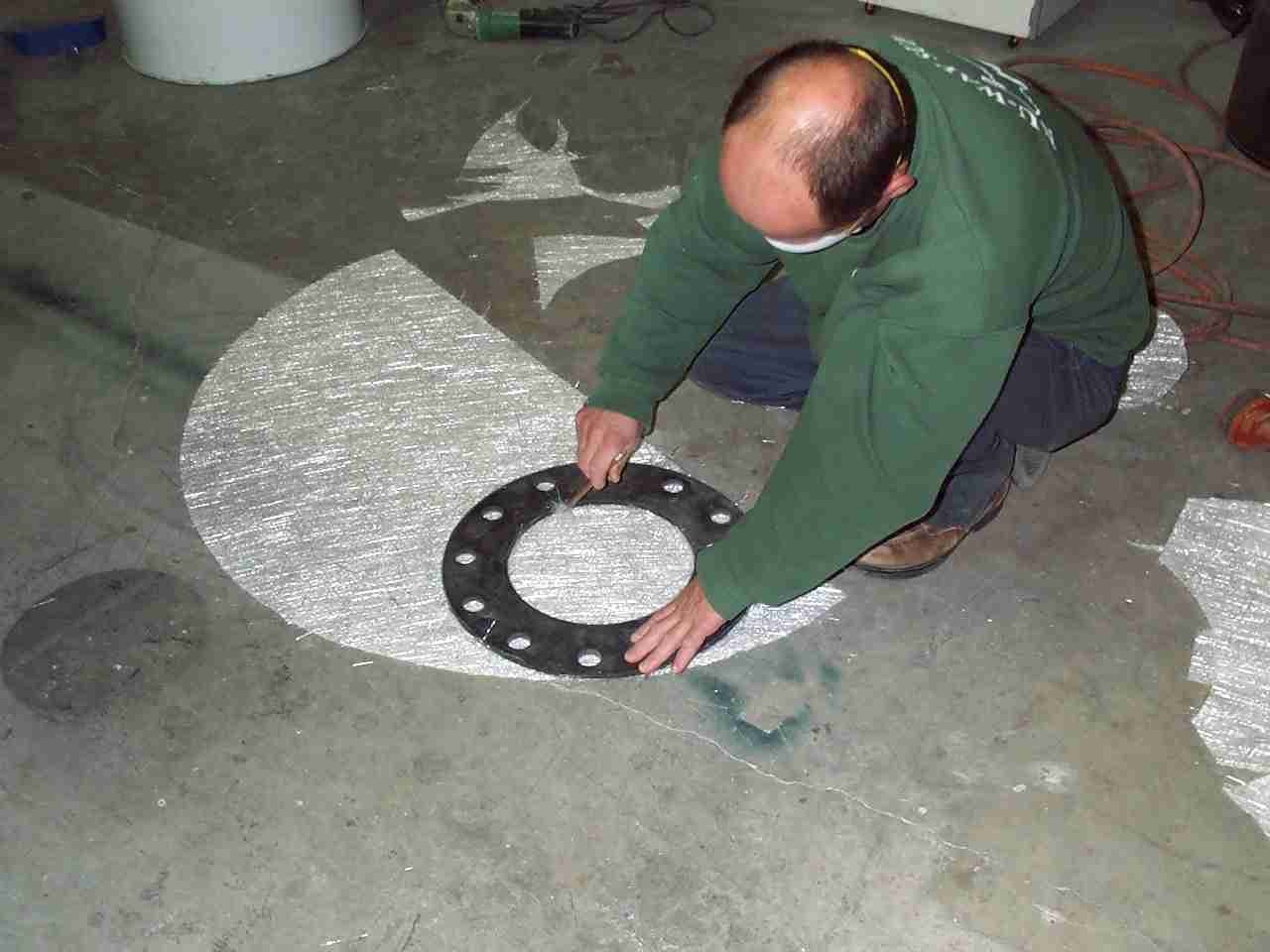 Figure 4.5: The rubber sealing gaskets used to protect the annulus from the ingress of dirt and moisture during transport of the cryostat from the manufacturer are used as templates for cutting rings of fiberglass cloth which will act as the permanent sealing gasket.
Figure 4.5: The rubber sealing gaskets used to protect the annulus from the ingress of dirt and moisture during transport of the cryostat from the manufacturer are used as templates for cutting rings of fiberglass cloth which will act as the permanent sealing gasket.
Figure 4.6: It is important to wear respiratory protection whenever working with or around fiberglass. N-95 masks are suitable for such work, whereas a full-face N-100 respirator is required for work where perlite dust is being generated.
The fiberglass cloth rings are then applied to the cryostat evacuation plate flange using the same laminating resin that was used to adhere the cotton filter pads.
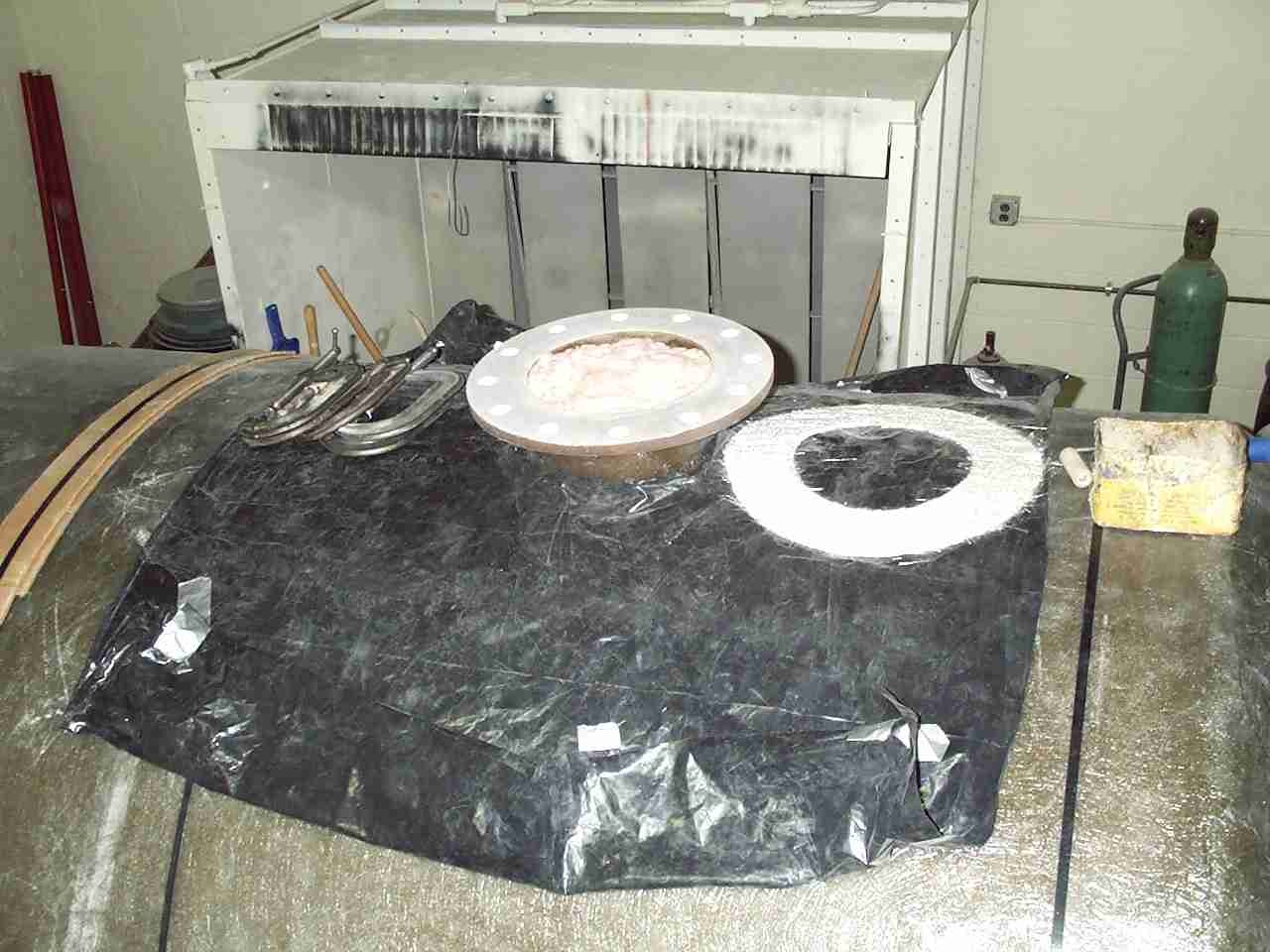 Figure 4.7: This illustrates proper preparation for cementing the fiberglass cloth rings to the evacuation port plate flange. Note the presence of a piece of protective (black) plastic to prevent damage or marring of the surface of the cryostat with the resin being used to cement the rings in place.
Figure 4.7: This illustrates proper preparation for cementing the fiberglass cloth rings to the evacuation port plate flange. Note the presence of a piece of protective (black) plastic to prevent damage or marring of the surface of the cryostat with the resin being used to cement the rings in place.
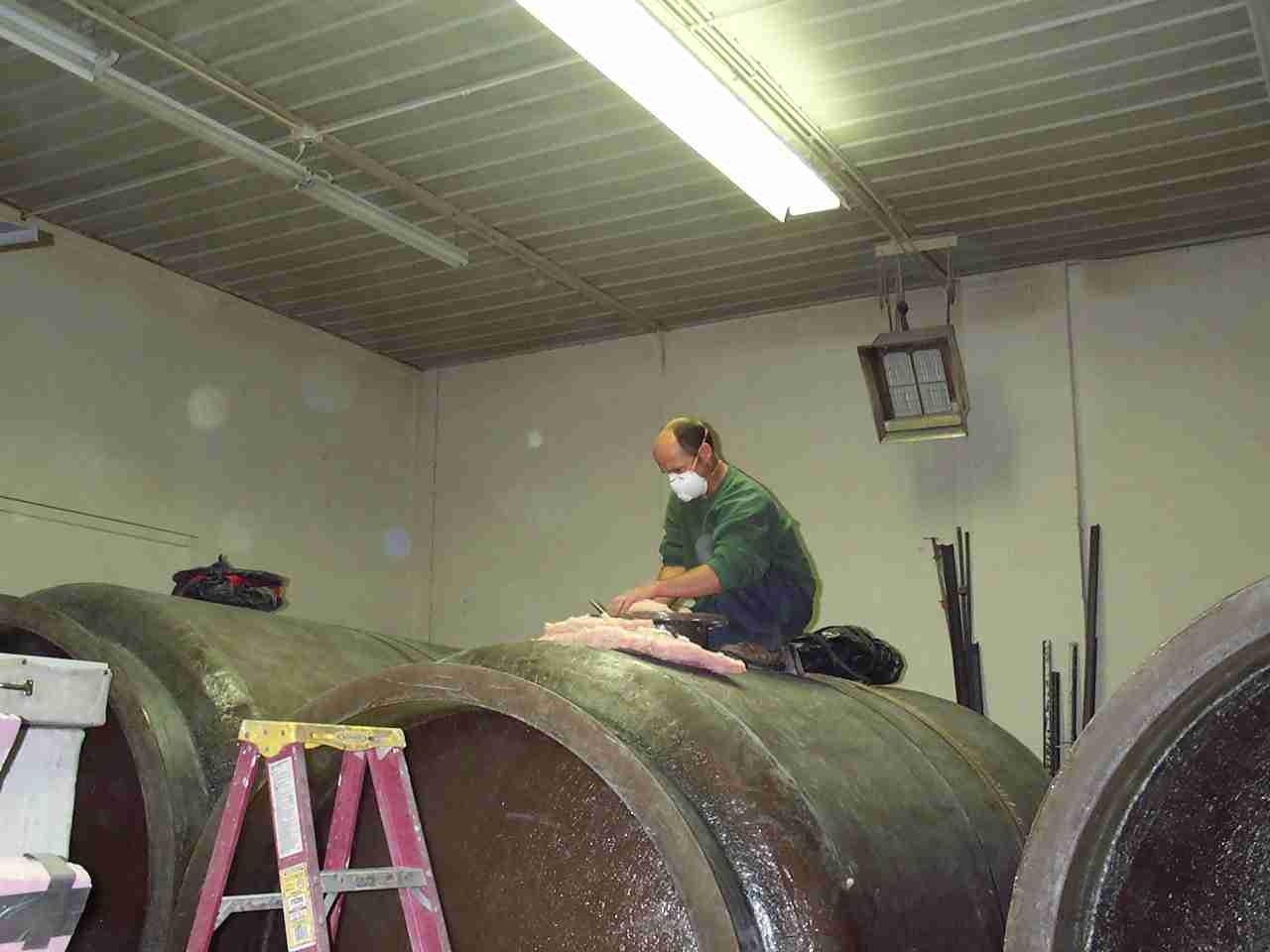 Figure 4.8: Household fiberglass building insulation (Owens-Corning) is used to plug the opening of the evacuation port. This prevents the perlite from migrating into the vacuum line, and it also serves as a coarse pre-filter for the larger particles of perlite dust, preventing them from entering the vacuum pumps.
Figure 4.8: Household fiberglass building insulation (Owens-Corning) is used to plug the opening of the evacuation port. This prevents the perlite from migrating into the vacuum line, and it also serves as a coarse pre-filter for the larger particles of perlite dust, preventing them from entering the vacuum pumps.
Owens-Corning fiberglass “wool” building insulating is packed against the perlite to prevent the perlite from plugging the filter. The edges are then painted with laminating resin to facilitate adherence of the fiberglass cloth rings.
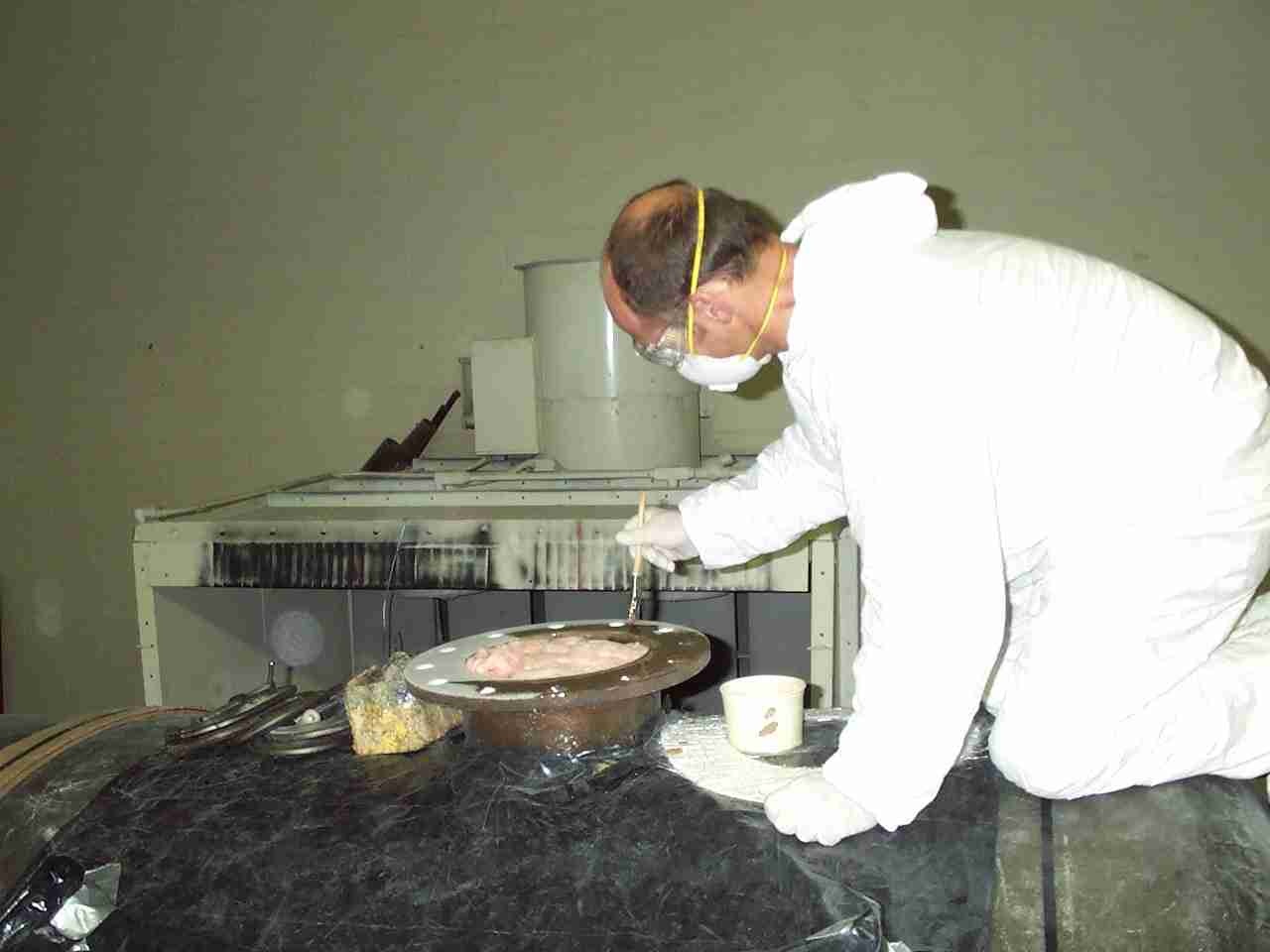 Figure 4.9: The edges of the evacuation port flange are carefully painted with resin to insure adhesion of the fiberglass cloth rings and to facilitate a thorough seal when the port cover is applied and clamped in place for final bonding to the flange.
Figure 4.9: The edges of the evacuation port flange are carefully painted with resin to insure adhesion of the fiberglass cloth rings and to facilitate a thorough seal when the port cover is applied and clamped in place for final bonding to the flange.
4.10: A small paint application roller is used to evenly apply (and assure saturation of) the fiberglass cloth rings to the flange.
A roller applicator is used to apply more laminating resin to the fiberglass cloth rings. Three fiberglass “cloth” rings are applied in this manner to each cryostat. [The non-disposable parts of the roller may be cleaned up with acetone after use.] Once preparation of the fiberglass cloth rings is completed, the back surface of the evacuation port cover plate is painted with resin, taking care not to contaminate the cotton batting filters.
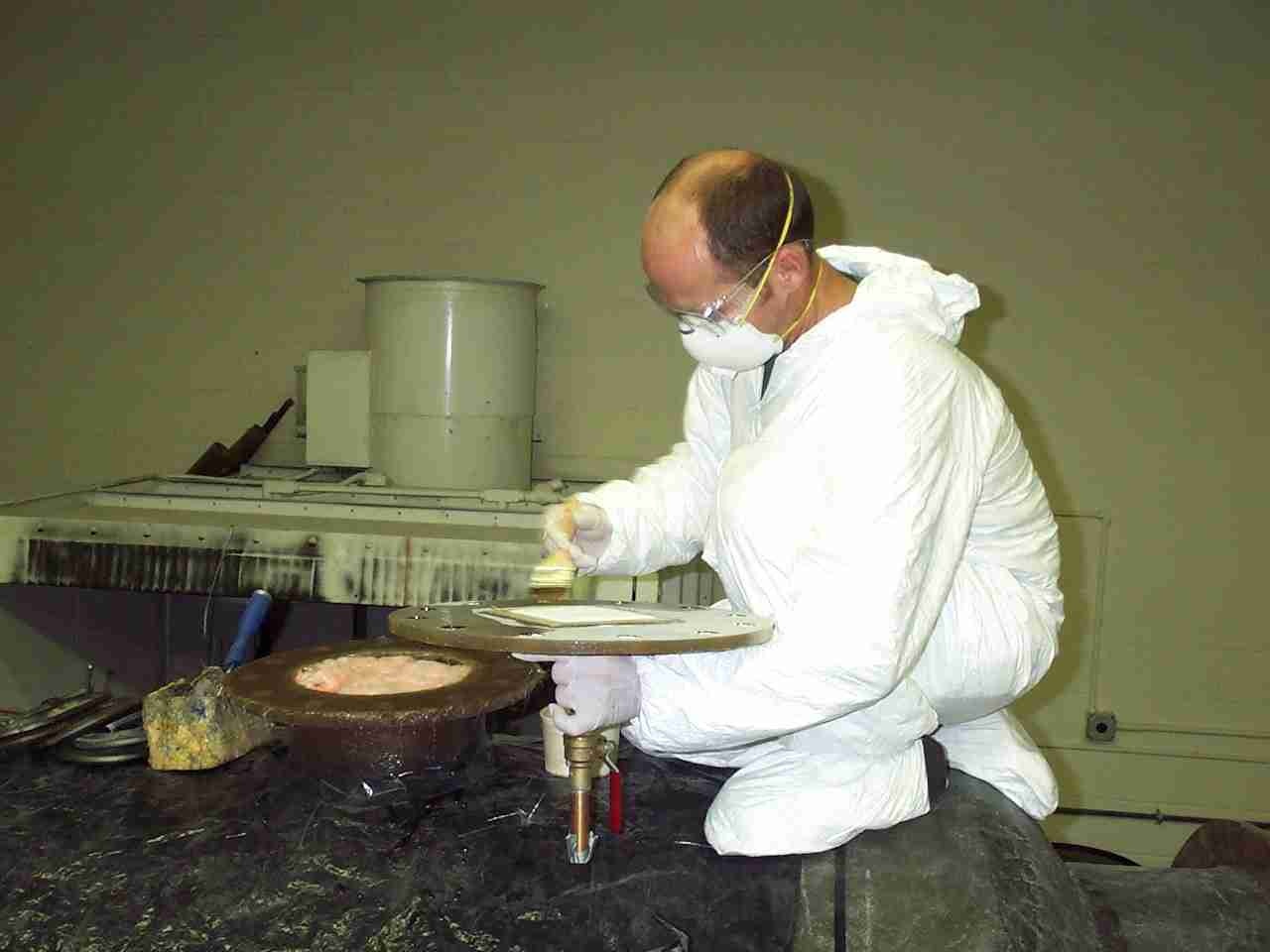 Figure 4.11: After the prep of the filter is completed and the final coat of adhesive has been applied, the back of the evacuation port cover plate is carefully and completely painted with adhesive resin taking care not to get resin on the cotton filter pads.
Figure 4.11: After the prep of the filter is completed and the final coat of adhesive has been applied, the back of the evacuation port cover plate is carefully and completely painted with adhesive resin taking care not to get resin on the cotton filter pads.
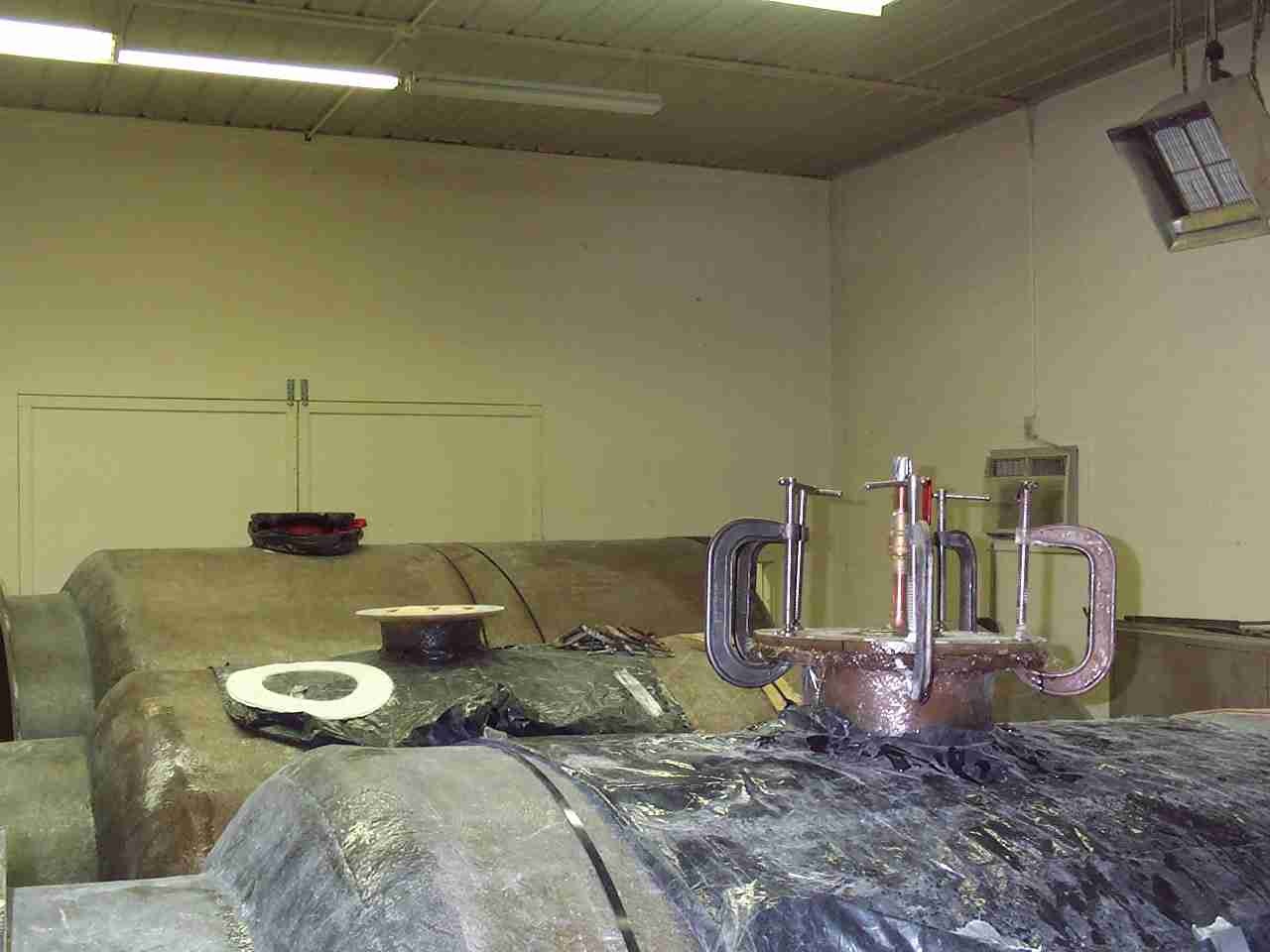 Figure 4.12: The evacuation port cover is then attached to the flange and held in place tightly with 4 equidistantly spaced C-clamps which are left in place until the resin has dried and fully hardened (~72 hours under normal working conditions).
Figure 4.12: The evacuation port cover is then attached to the flange and held in place tightly with 4 equidistantly spaced C-clamps which are left in place until the resin has dried and fully hardened (~72 hours under normal working conditions).
The evacuation port cover with its integral filter (i.e., glued-on assembly of 3 cotton bats) is then clamped onto the flange opening and held in position for the adhesive resin to set up and cure.
5.0 Initial (rough) evacuation of the cryostat
Initial evacuation of the cryostat is undertaken using the Alcatel ACP-15 roughing pump to a stable vacuum of ~ 500 torr. The Welch 1376C-03,DUOSEAL®, two-stage, belt drive high vacuum pump. must not be used for initial evacuation of the cryostat. Failure to pre-evacuate the cryostat using a roughing pump will result in contamination of the oil in the two-stage pump with water and can damage the pump mechanism. Additionally, two-stage vacuum pumps are not designed to pump high density atmospheric gas – they are to be used only as “polishing” pumps to harden and subsequently maintain the vacuum to ~ 1.0 torr.
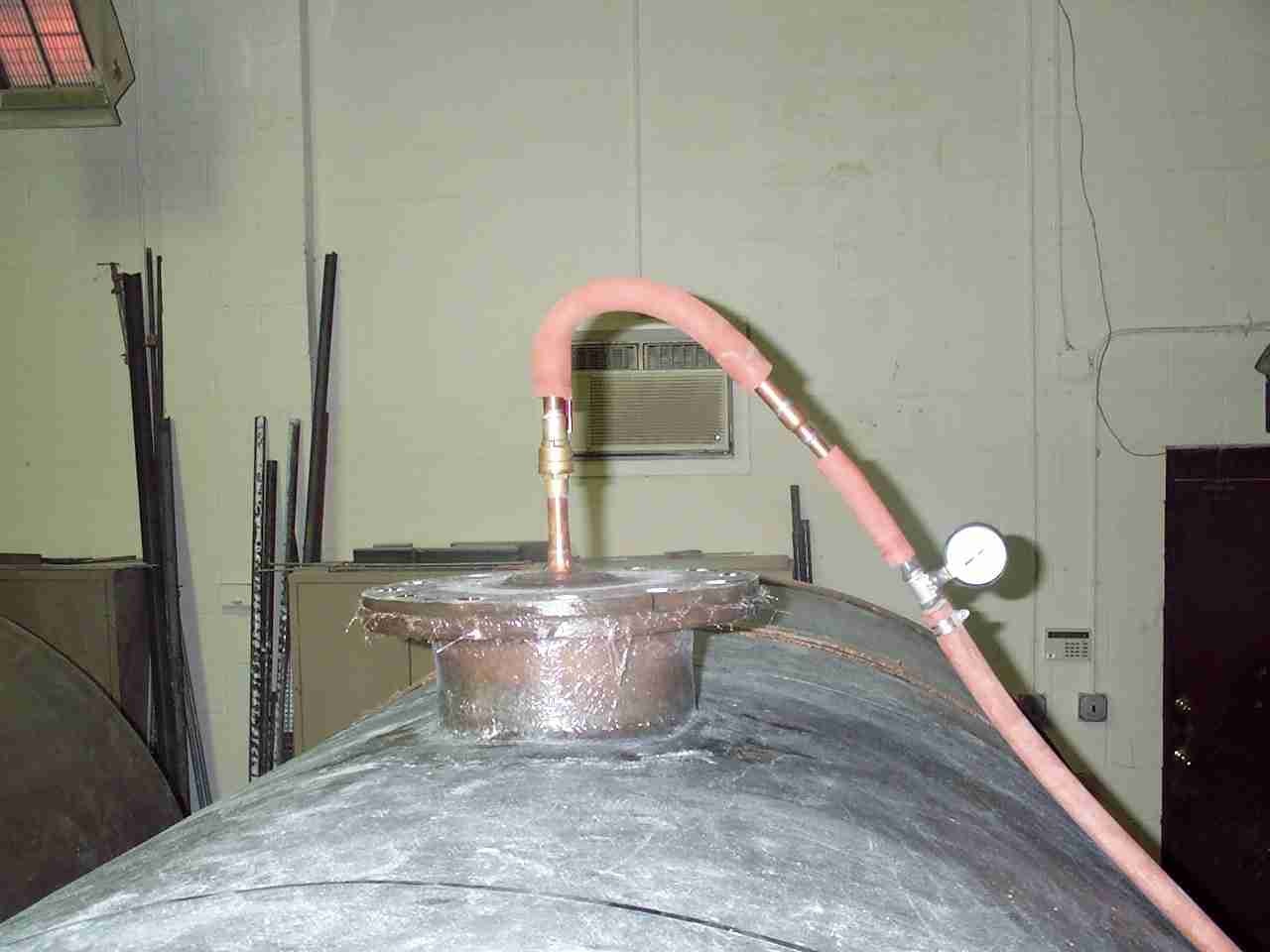 Figure 5.1: Initial evacuation of the perlite filled annulus is accomplished using the Alcatel roughing pump. An inexpensive Bourdon tube vacuum gauge (VG350-14CBM) is interposed in the vacuum line (mounted on a 3/4″ copper T-connector) to monitor the progress of the initial pump-out.
Figure 5.1: Initial evacuation of the perlite filled annulus is accomplished using the Alcatel roughing pump. An inexpensive Bourdon tube vacuum gauge (VG350-14CBM) is interposed in the vacuum line (mounted on a 3/4″ copper T-connector) to monitor the progress of the initial pump-out.
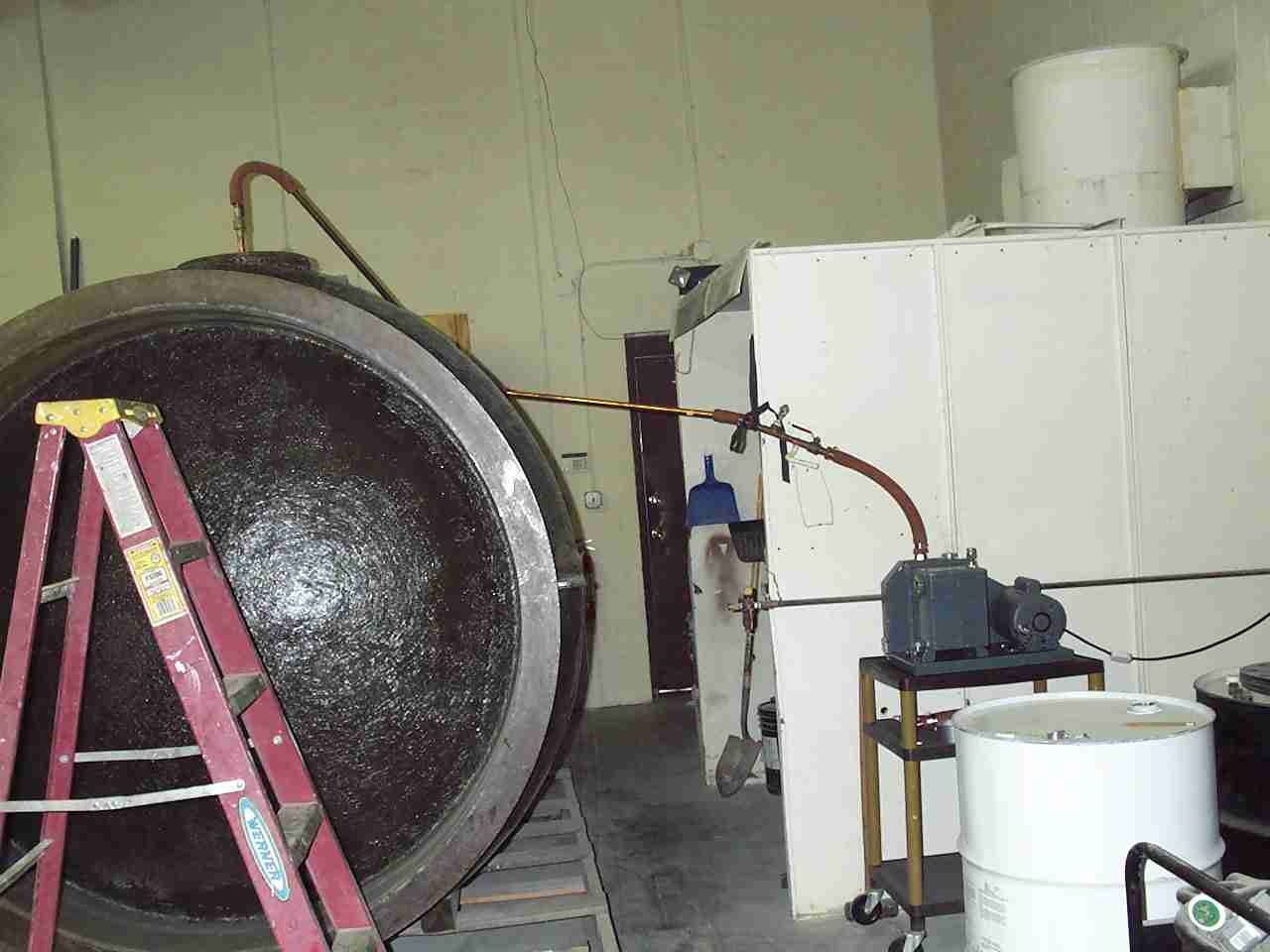 Figure 5.2: Once a vacuum of ~ 1.0 torr is achieved, the vacuum valve is closed, the roughing pump is removed, and the 2-stage vacuum pump is connected to the annulus. For this preliminary hardening of the vacuum a thermocouple vacuum gauge is used and is placed near the pump, for convenience.
Figure 5.2: Once a vacuum of ~ 1.0 torr is achieved, the vacuum valve is closed, the roughing pump is removed, and the 2-stage vacuum pump is connected to the annulus. For this preliminary hardening of the vacuum a thermocouple vacuum gauge is used and is placed near the pump, for convenience.
6.0 Preparing the base of the cryostat prior to erection upright.
A five foot diameter circle of 3/4″ plywood is used to seal and secure the bottom of the cryostat. The plywood circle has three 5″diameter holes cut in it, arranged as shown in Figure 6.1, to allow for 2-part urethane foam resin to be poured into the space between the plywood circles and the bottom of the cryostat. Once the urethane resin foams, expands and sets, it serves to stabilize and reinforce the plywood so the bottom of the cryostat and ensure that it is well supported and stable on the floor when the unit is finally filled with liquid nitrogen.
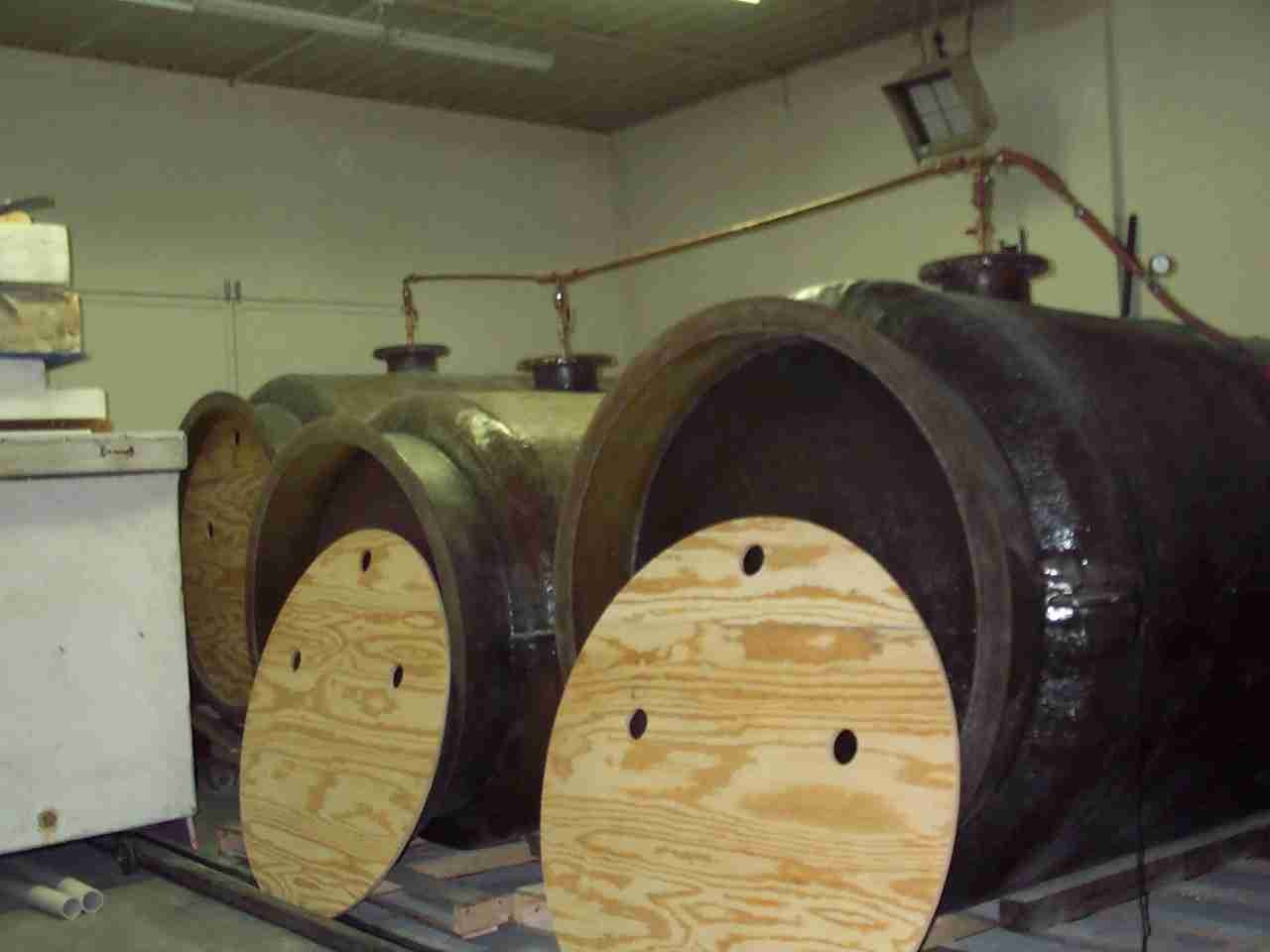 Figure 6.1:Circles of 3/4″ plywood are cut so as to fit into the opening of the base of the cryostat’s outer cylinder. Three 5″ diameter holes, spaced equidistant from each other are cut into the plywood to allow for filling of the space between the plywood discs and the bottom of the cryostat with urethane foam. The discs are placed with the holes at the top of cryostat base so that the urethane resin-activator mixture does not leak out onto the floor during loading into the base of the cryostat.
Figure 6.1:Circles of 3/4″ plywood are cut so as to fit into the opening of the base of the cryostat’s outer cylinder. Three 5″ diameter holes, spaced equidistant from each other are cut into the plywood to allow for filling of the space between the plywood discs and the bottom of the cryostat with urethane foam. The discs are placed with the holes at the top of cryostat base so that the urethane resin-activator mixture does not leak out onto the floor during loading into the base of the cryostat.
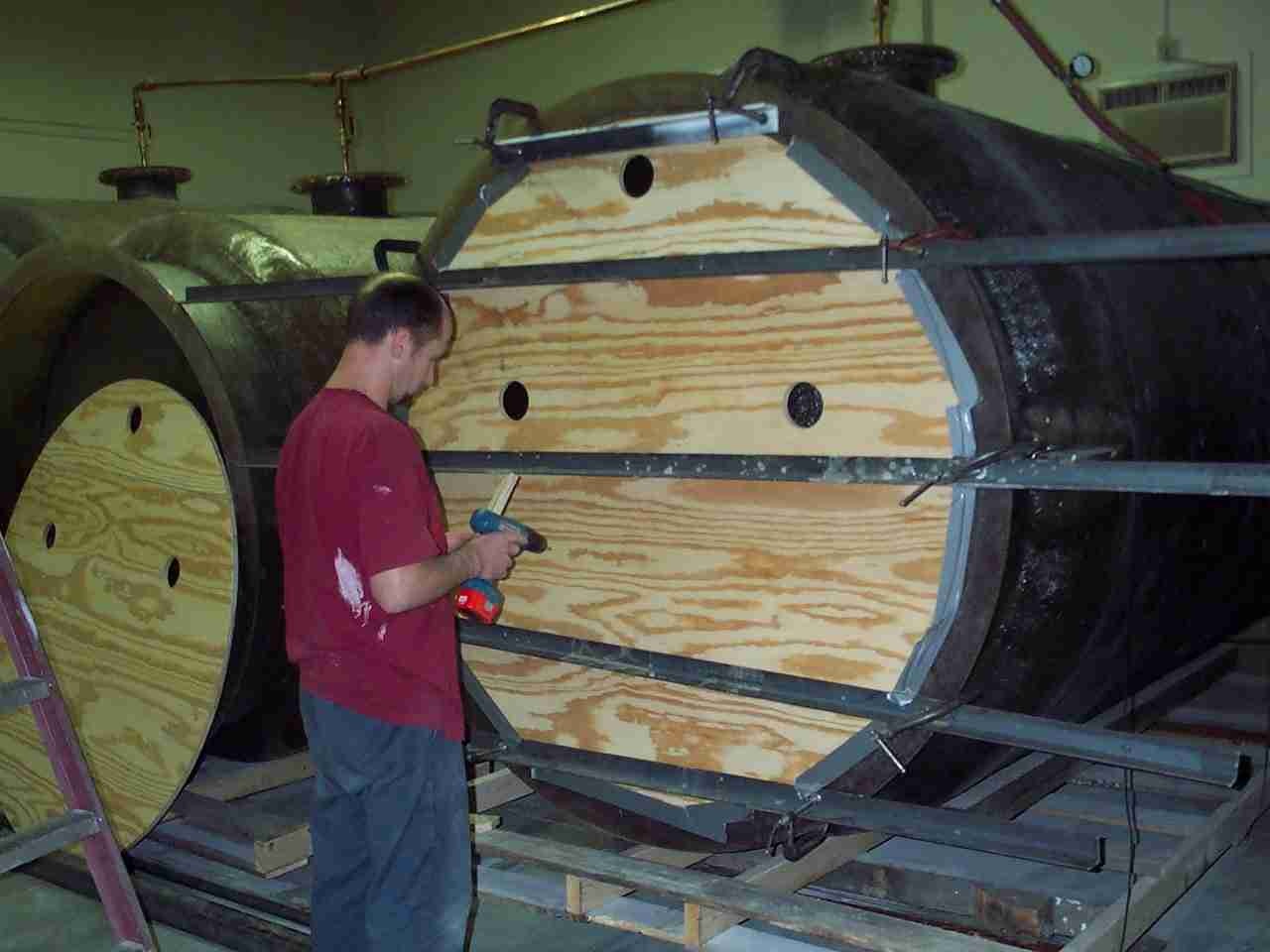 Figure 6.2: The plywood disc is initially held in place with duct tape until it can be firmly anchored with steel tube stock or metal bars to prevent it from being displaced by the expanding urethane foam.
Figure 6.2: The plywood disc is initially held in place with duct tape until it can be firmly anchored with steel tube stock or metal bars to prevent it from being displaced by the expanding urethane foam.
The plywood disc is initially secured to the bottom of the cryostat with duct tape and then clamped firmly into place using rigid steel tube stock or metal bars and heavy-duty C-clamps, as shown in Figures 6.2 and 6.6
The space between the plywood disc and the bottom of the cryostat can now be filled with supporting, rigid, closed-cell urethane foam. The foam used for this is MF-1002 1.2 lb density urethane foam (from Michigan Fiberglass Sales). The foam is prepared from a two component kit consisting of urethane resin (part-A) and activator (Part-B) which are mixed in equal parts using a wooden paint mixing-type stick in disposable 2-gallon paper pails. The resin, activator, paper pails and wooden mixing paddle are included with each MF-1002 kit.
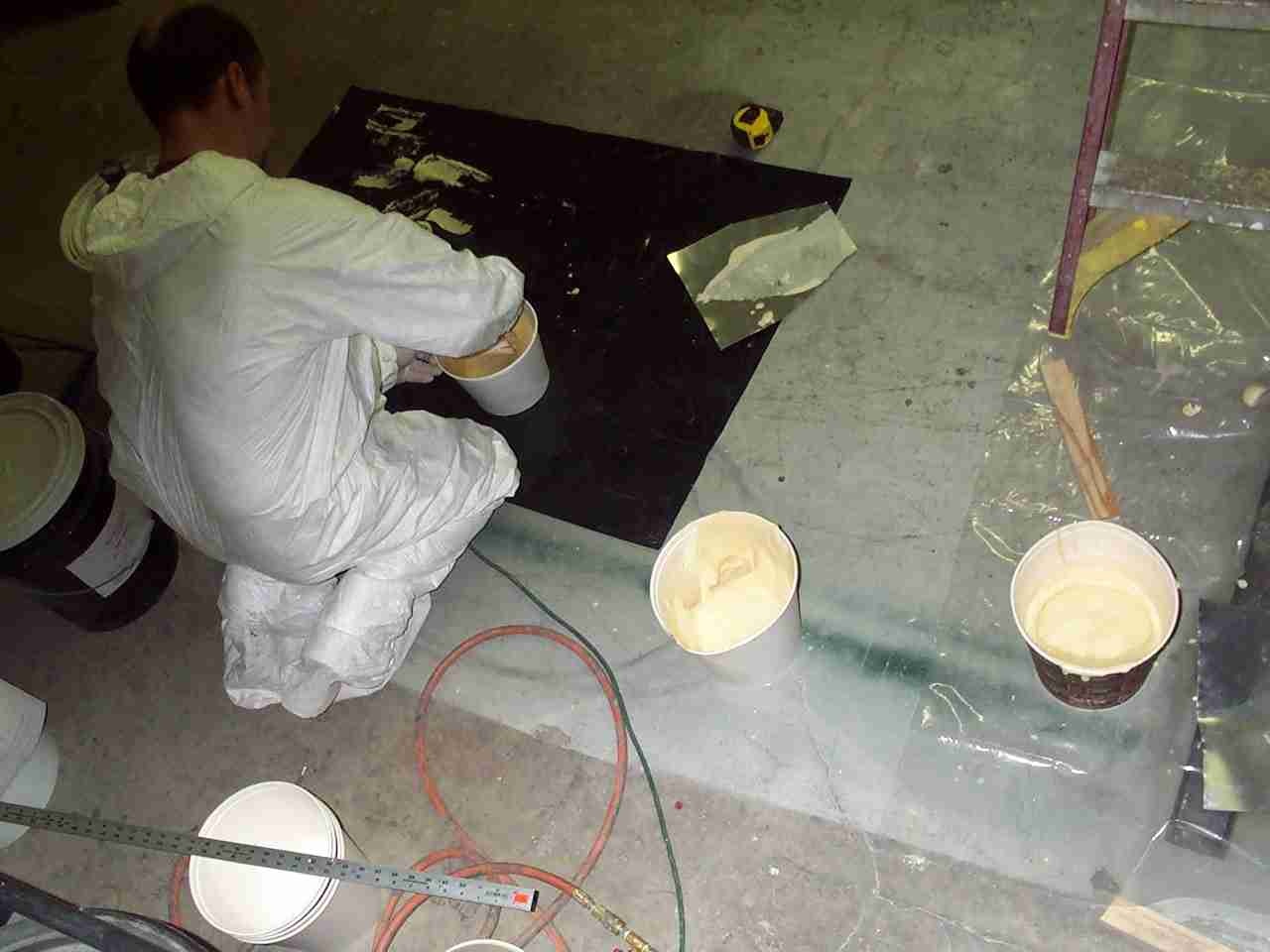 Figure 6.3: The two (A&B) components of the urethane foam are mixed in disposable paper pails using a wooden mixing paddle (also disposable). The foaming reaction begins almost immediately and is well underway within a minute.
Figure 6.3: The two (A&B) components of the urethane foam are mixed in disposable paper pails using a wooden mixing paddle (also disposable). The foaming reaction begins almost immediately and is well underway within a minute.
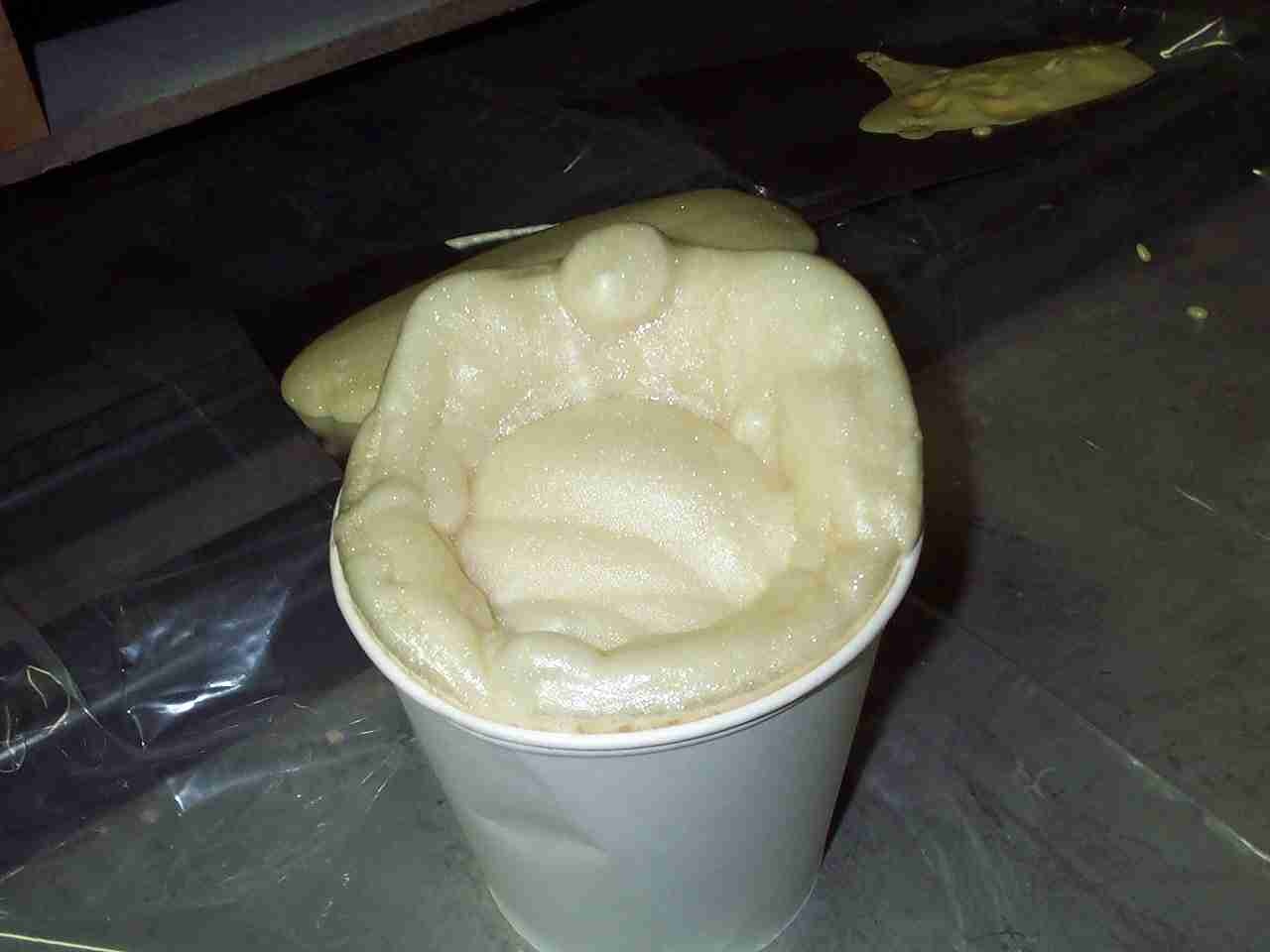 Figure 6.4: Foaming action of the combined resin and activator less than a minute after being combined and thoroughly mixed in the mixing-dispensing pail.
Figure 6.4: Foaming action of the combined resin and activator less than a minute after being combined and thoroughly mixed in the mixing-dispensing pail.
Once the components are mixed, the activated urethane resin will expand to ten times its starting volume and will subsequently harden into dense foam. The foaming action begins within 60 seconds of the start of mixing of the resin and activator, so it is necessary to quickly pour the mixture into the holes in the plywood. The activated urethane resin is poured into the headspace using disposable funnels made from lightweight aluminum sheet metal (~22 gauge). The resulting urethane foam requires approximately an hour to set and is fully cured in 24 hours.
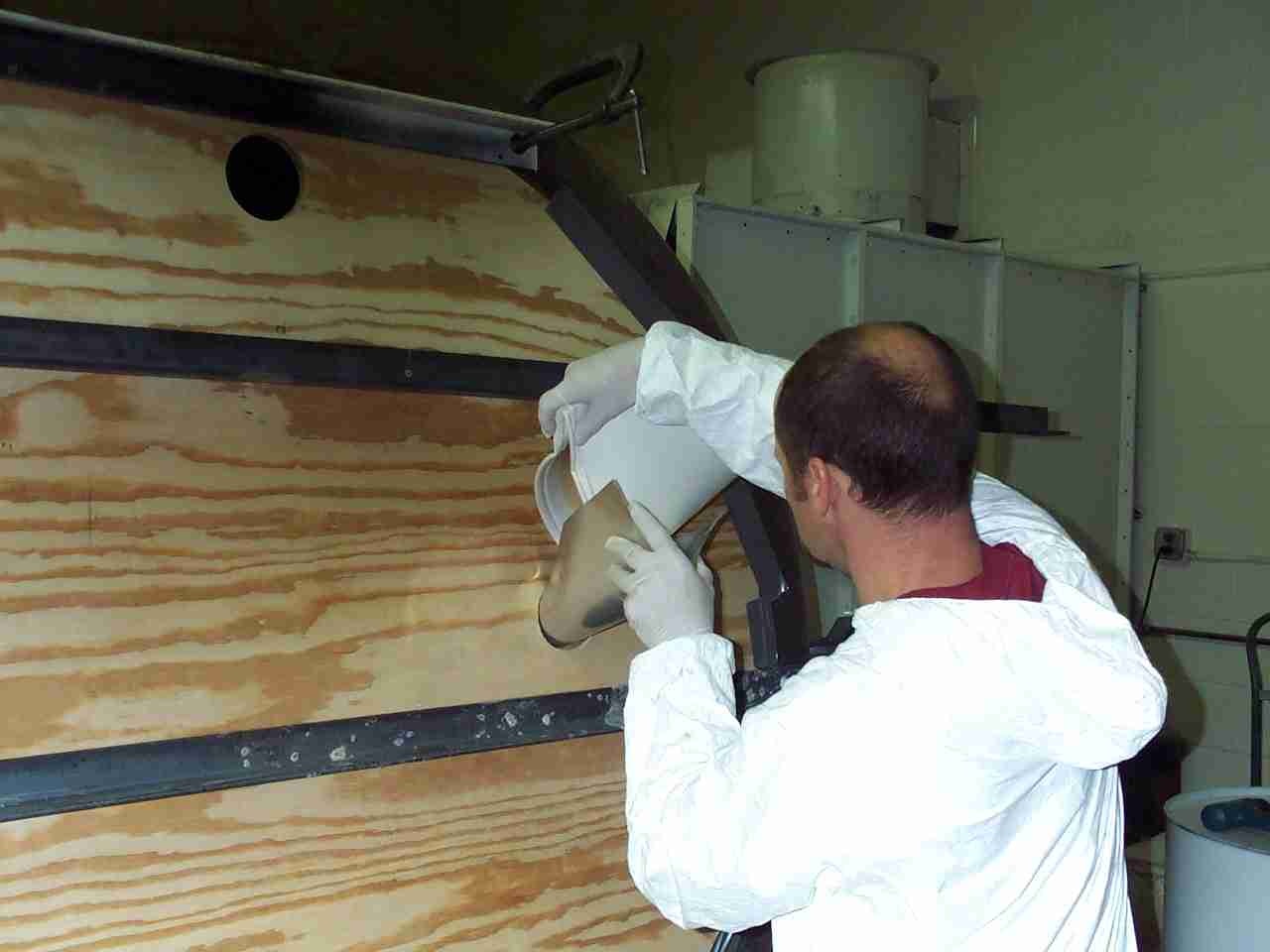 Figure 6.5: Lightweight flexible aluminum sheet metal is formed into half-cones which are taped in place to form funnels. These disposable funnels are then used to facilitate pouring the mixture into the 5″ holes cut into the plywood discs, starting with the lower holes and finishing up with the top holes.
Figure 6.5: Lightweight flexible aluminum sheet metal is formed into half-cones which are taped in place to form funnels. These disposable funnels are then used to facilitate pouring the mixture into the 5″ holes cut into the plywood discs, starting with the lower holes and finishing up with the top holes.
Figure 6.6:Once the urethane foam has filled the headspace and has stopped exhausting from the filling holes, the holes are covered with squares of plywood which are screwed into place. The plywood disc should then be primed and painted with a waterproof oil-based, or two-part epoxy concrete floor paint, to prevent subsequent water damage due to efflorescence from the concrete slab, or insect (termite) infestation.
Four to six 2-gallon pails of the activated resin mixture is typically enough for each cryostat. [ The density of the foam may be altered by changing the ratio of resin and activator: more part-B than part-A results in a larger final volume of foam with less density.]
The cryostat is now ready for movement to the patient storage area of the facility for erection to a vertical position, fire-retardant coating, final hardware outfitting, painting and placement into service.
_______________________________________________________
By Mike Darwin
SPECIMEN PROPOSED INTERNATIONAL PURCHASE CONTRACT AS OF 2009
TERMS AND CONDITIONS OF CONTRACT FOR PURCHASE OF ALMAX LIQUID NITROGEN CRYOPATIENT STORAGE CRYOSTAT
These Conditions may only be varied with the written agreement of the Purchaser.. No terms or conditions put forward at any time by the Supplier (Almax) shall form any part of the Contract unless specifically agreed in writing by the Purchaser.
1. DEFINITIONS
In these Conditions:
“Purchaser” means the Purchaser, a limited liability company located at OOO “Purchaser_______________________________________________, hereinafter referred to as ‘Purchaser.’
“Supplier” means Almax Products, 363 Coldbrook Road, P.O. Box 441, Bearsville, NY, United States of America, 12409, Phone: 845-679-4615, FAX: 845-679-8620 email: Almax441@aol.com hereinafter referred to as ‘Almax.’
“Goods” means any goods as are to be supplied to Purchaser by Almax Products (or by any of the Supplier’s subcontractors) pursuant to or in connection with this Contract, as detailed in the Purchase Order attached to this contract and in Section 2.4, below.
“Contract” means the Contract between Purchaser and the Almax consisting of the Purchase Order, these conditions and any other documents (or parts thereof) specified in the Purchase Order and in A.
“Purchase Order” means the document setting out Purchaser’ requirements for the Contract.
2. GOODS
2.1 The Goods shall be to the reasonable satisfaction of Purchaser and shall conform in all respects with any particulars specified in the Contract and in any variations thereto.
2.2 The Goods shall conform in all respects with the requirements of any statutes, orders, regulations or bye-laws from time to time in force.
2.3 The Goods shall be fit and sufficient for the purpose for which such Goods are ordinarily used and for any particular purpose by Almax in the supply of the Goods and the execution of the Contract.
2.4 Specifically, Almax agrees to provide the following goods and services:
2.4.1 A double walled, cylindrical, composite vinyl ester resin fiberglass, perlite and vacuum (10-3 mm Hg) insulated cryogenic liquid nitrogen biological specimen storage container (cryostat) based on the engineering drawings provided by Almax Products and attached to this Contract as Exhibit A. The inner vessel diameter is 1220 mm, and the inner vessel height is 2440 mm (tolerance ± 2 mm). The outer vessel diameter is 1830 mm, and the outer vessel height 2740 mm (without stand). With the stand the overall height of the cryostat is 3200 mm. The empty weight with the stand attached is 1814 kg. The inner cylinder wall thickness is a minimum of 12.7 thick. The approximate working volume for liquid nitrogen of the cryostat is 2142 liters.
All drawings are included in the price. Almax will send detailed drawings, blueprints and photos as requested, upon signing the contract.
Materials of construction for the cryostat are as follows:
Outer cylinder or shell: H-992 MEKP/COBALT STRUCT
Inner cylinder or shell: H-992 MEKP/COBALT STRUCT
Heads: H-992 MEKP/COBALT STRUCT
Flanges: H-992 MEKP/COBALT STRUCT
Nozzle necks: H-992 MEKP/COBALT STRUCT
External nuts/bolts: CS
CS Gaskets: 11 mm Neoprene rubber
Corrosion Barrier: 1-ply “C” backed W 2-ply chopped strand fiberglass laminate
Exterior: Five (5) coats of FireFree FF88 tumescent fire protective coating as supplied by FIREFREE Coatings, Inc., 580 Irwin Street, Suite 1, San Rafael, CA 94901, Phone: (888) 990-3388, USA and applied per the manufacturer’s specifications and instructions attached as Exhibit B to this Contract.
Design Pressure: (4′) + 15 PSIG, (6′) – 15 PSIG
Design standards: ASTM-D3299
2.4.2 A stand for the cryostat is provided equipped with 4 casters capable of easily rolling over finished concrete floors with the unit fully loaded with liquid nitrogen at a gross weight of 2,430 kg including the cryostat stand, neck-plug and cover.
2.4.3 Cryostat will be loaded with perlite prior to shipment. Additional perlite will be furnished for “top off” as per 2.4.4, below. Price of cryostat inclusive of above: $25,000 with $3,000 discount on a second cryostat if ordered with 90 days of the receipt of the unit specified in this Contract.
2.4.4 Fourteen (14) bags Grefco Minerals HP-500 grade perlite as supplied Noble Perlite, 312 W Chestnut, Noble, OK 73068-8545 USA, phone:405-872-5660.@ $ 30 a bag (30 pound bag) plus a $15.00 pallet charge, price: $435.00
2.4.5 One (1) each resin kit to include: 2 ea: 10″ wide x 50 yards rolls of 1.5 oz FRP mat and 1 each 5-gallon drum of 411-400 resin, price: $545.00
2.4.6 Annular space vacuum burst disc to be provided by Purchaser or Purchaser’ designated vendor FOB to Almax.( Rupture disc set pressure: 15 psi rupture temp: ambient (-20 to +45 deg C) normal operating pressure: 2.5 x 10-5 torr (high vacuum) on one side, ambient pressure (1 atmosphere) Almax installation charge: $175.00
2.4.7 One (1) each extra 41.9 cm diameter evacuation port/filter cover plate to be supplied by Almax, price $245.00
2.4.8 One (1) each 41.9 cm diameter evacuation port/filter cover plate fully outfitted with 7-ply cotton filter and 3/4″ copper pipe and fittings, including Mueller brand 3/4″ ball brass ball valve (Home Depot part #06P115) sealed and assembled per the procedure detailed in Exhibit C, attached to this Contract, price included in base cryostat price.
2.4.9 Five (5) each: steel clevises for lifting cryostat capable of bearing a weight of at least 1,000 kg each, price: $148.50.
2.5.0 One (1) each R-06413-30 Tygon® vacuum tubing, 3/8″ID x 7/8″OD, 10 ft/pack, price $115.00
2.5.1 One (1) each 10 ft length Fischer Scientific red rubber vacuum tubing 9.5mm ID 22.3mm OD, 3/8″ ID 7/8″ OD., price: $69.90
2.5.2 Almax agrees to work with the subcontractor selected for the cryostat cover, Beck Industries of 24454 Sorrentino Court, Clinton Township,MI, 48035, USA, Phone number (586)790-4060, to ensure that the stainless steel cover fabricated by Beck Industries fits the cryostat supplied by Almax. In the event the cover does not fit due to incorrect specification supplied to Beck Industries by Almax, then Almax shall be fully liable for the replacement cost of said cover.
3. PRICE
3.1 The price of the Goods shall be as stated in the Contract and no increase will be accepted by Purchaser unless agreed by them in writing before the execution of the Contract.
3.2 Unless otherwise agreed in writing by Purchaser, Almax shall render a separate invoice in respect of each consignment delivered under the Contract. Payment shall be due 30 days after receipt of the Goods or the correct invoice therefore, whichever is the later.
3.3 Taxes, where applicable, shall be shown separately on all invoices as a strictly net extra charge.
3.4 The cost of palletizing and preparing the cryostat for shipment and for shipping the container is to be paid by Almax. Shall employ a licensed and bonded forwarder to handle the entire shipping procedure to include arranging the pick-up and delivery of Goods, filing and completing all required paperwork, and clearing of the Goods through customs.
3.5 The total price is $27,733.34
3.6 The price shall be paid as follows:
• 1/3rd deposit upon initiation of this Contract and issuance of the Purchase Order
• 1/3rd upon completion of unit/system and or photo or inspection at factory
• Final 1/3rd prior to ship and confirming positive test results done by Purchaser at its facility in Moscow, Russian federation
• Prices are FOB shipping point.
• All payments are in US dollars.
4. DELIVERY
4.1 The Goods shall be delivered to Purchaser, _________________________. Any access to premises and any labor and equipment that may be provided by Purchaser in connection with delivery shall be provided without acceptance by the Purchaser of any liability whatsoever and Almax shall indemnify Purchaser in respect of any actions, suits, claims, demands, losses, charges, costs and expenses which the Purchaser may suffer or incur as a result of or in connection with any damage or injury (whether fatal or otherwise) occurring in the course of delivery or installation to the extent that any such damage or injury is attributable to any act or omission of the Supplier or any of his subcontractors.
4.2 Where any access to the premises is necessary in connection with delivery or installation, the Supplier and his sub contractors shall at all times comply with the reasonable requirements of the Purchaser’ staff.
4.3 The time of delivery shall be of the essence and failure to deliver within eighty (80) days shall enable Purchaser (at its option) to release itself from any obligation to accept and pay for the Goods and/or to cancel all or part of the Contract therefore, in either case without prejudice to its other rights and remedies.
5. PROPERTY AND RISK
5.1 Property and risk in the Goods shall without prejudice to any of the rights or remedies of the Purchaser (including Purchaser’ rights and remedies under condition 7 hereof) pass to Almax at the time of delivery.
5.2 The property in the Goods shall pass to Purchaser upon payment for the Goods unless delivery of the Goods is made prior to payment, when it shall pass to Purchaser once the Goods have been delivered.
5.3 Any Goods for which the Supplier has received payment but which have not been delivered will, for the avoidance of doubt, remain the exclusive property of Purchaser and may be removed at any time by Purchaser or its representatives from wherever they are stored.
6. DAMAGE IN TRANSIT
6.1 On dispatch of any consignment of the Goods Almax shall send to Purchaser at the address for delivery of the Goods an advice note specifying the means of transport, the place and the date of dispatch, the number of packages and their weight and volume. Almax shall free of charge and as quickly as possible either repair or replace (as the Purchaser shall elect) such of the Goods as may either be damaged in transit or having been placed in transit fail to be delivered to Purchaser provided that: (a) in the case of damage to such goods in transit the purchaser shall within 30 days of delivery give notice to Purchaser that the Goods have been damaged, (b) in the case of non delivery Purchaser shall (provided that Almax has been advised of the dispatch of the Goods) within 10 days of the notified date of delivery give notice to the Supplier that the Goods have not been delivered.
7. INSPECTION, REJECTION AND GUARANTEE
7.1 Almax Products guarantees and warrants that the cryostat will maintain a vacuum of 10-3 mm Hg between inner and outer containers with no more than 24 hours of pumping (using a standard laboratory vacuum pump with a minimum of 20 LPM of free air displacement and capable of delivering an ultimate vacuum of 1 x10 -4) per 30 day period. Almax further warrants that the cryostat (inner and outer containers and joint at the neck-tube) will retain their structural integrity without leaking or cracking at a pressure difference of one atmosphere while storing a full load of liquid nitrogen (at least 2142 liters) and that the cryostat will conform to the description and drawings attached hereto as exhibit
7.2 Almax shall permit Purchaser or his authorized representatives to make any inspections or tests they may reasonably require and Almax shall afford all reasonable facilities and assistance free of charge at his premises. No failure to make complaint at the time of such inspection or tests and no approval given during or after such tests or inspections shall constitute a waiver by Purchaser’ of any rights or remedies in respect of the Goods.
7.3 Purchaser may by written notice to Almax reject any of the Goods which fail to meet the requirements specified herein. Such notice shall be given within a reasonable time after delivery to Purchaser of Goods concerned. If Purchaser shall reject any of the Goods pursuant to this Condition, Purchaser shall be entitled (without prejudice to his other rights and remedies) either (a) to have the Goods concerned as quickly as possible either repaired by Almax or (as the Purchaser shall elect) replaced by Almax with Goods which comply in all respects with the requirements specified herein, or (b) to obtain a refund from Almax in respect of the Goods concerned with no charge, either in materials or labor, to Purchaser.
7.3 The guarantee period applicable to the cryostat shall be 3 years from putting into service or 3 years from delivery, whichever shall be the shorter (subject to any alternative guarantee arrangements agreed in writing between Purchaser and Almax). If Purchaser shall within such guarantee period, or within 30 days thereafter, give notice in writing to Almax of any defect in any of the Goods as may have arisen during such guarantee period under proper and normal use Almax shall (without prejudice to any other rights and remedies which Purchaser may have) as quickly as possible remedy such defects (whether by repair or replacement as the Purchaser may elect) without cost to Purchaser.
7.4 Prior to shipment of the cryostat Almax shall perform a successful vacuum confirmation and spark test and provide detailed results of these test to Purchaser.
7.5 Any Goods rejected or returned by Purchaser as described in paragraph 7.2 or 7.3 shall be returned to the Almax at Almax’s risk and expense.
8. LABELLING AND PACKAGING
8.1 The Goods shall be packed and marked in a proper manner and in accordance with the Purchaser’s instructions and any statutory requirements and any requirements of the carriers. In particular, the Goods shall be marked with the Purchase Order number, the net gross and tare weights, the name of the contents shall be clearly marked on each container and all containers of hazardous goods (and any documents relating thereto) shall bear prominent and adequate warnings. Almax shall indemnify Purchaser against all actions, suits, claims, demands, losses, charges, costs and expenses which Purchaser may suffer or incur as a result of, or in connection with, any breach of this Condition.
8.2 All packaging materials will be considered nonrefundable and will be destroyed unless Almax’s advice note states that such materials will be charged for unless returned. The Purchaser accepts no liability in respect of the non-arrival at the Supplier’s premises of empty packages returned by Purchaser unless Almax shall within 10 days of receiving notice from the Purchaser that the packages have been dispatched notify Purchaser of such non-arrival.
8.3 Almax agrees to accept for placement in the sea-land container transporting the Goods to Purchaser at ____________________________ such other accessory items and equipment as will reasonably fit in the container upon the mutual agreement of both parties at no additional charge to Purchaser.
9.0 CORRUPT GIFTS OR PAYMENTS
Almax shall not offer or give or agree to give, to any employee or representative of Purchaser any gift or consideration of any kind as an inducement or reward for doing or refraining from doing or having done or refrained from doing, any act in relation to the obtaining or execution of this or any other contract with Almax or showing or refraining from showing favor or disfavor to any person in relation to this or any such contract.
10. PATENTS AND INFORMATION
10.1 It shall be a condition of the Contract that the Goods are made up in accordance with designs furnished by Almax that none of the Goods will infringe any patent, trademark, registered design, copyright or other right in the nature of industrial property of any third party and Almax shall indemnify Purchaser against all actions, suits, claims, demands, losses, charges, costs and expenses which Purchaser may suffer or incur as a result of or in connection with any breach of this Condition.
10.2 All rights (including ownership and copyright) in any specifications, instructions, plans, drawings, patterns, models, designs or other materials (a) furnished to or made available to Almax Purchaser pursuant to the Contract, shall remain vested solely in Purchaser (b) prepared by or for Almax for use, or intended use, in relation to the performance of this Contract are hereby assigned to and shall be vested in the Purchaser solely and (without prejudice to condition 14.2). Almax shall not, and shall procure that his servants and agents shall not (except to the extent necessary for the implementation of the Contract) without the prior written consent of Purchaser, use or disclose any such specifications, instructions, plans, drawings, patterns, models, designs or other materials as aforesaid, or any other information (whether or not relevant to the Contract) which Purchaser may obtain pursuant to or by reason of this Contract, except information which is in the public domain, otherwise than by reason of a breach of this provision, and in particular (but without prejudice to the generality of the foregoing) Almax shall not refer to Purchaser or the Contract in any advertisement without Purchaser’ prior written agreement.
10.3 The provision of this Condition 10 shall apply during the continuance of this Contract and after its termination, howsoever arising.
11. HEALTH AND SAFETY
Almax represents and warrants to Purchaser that Purchaser has satisfied itself that all necessary tests and examinations have been made or will be made prior to delivery of the Goods to ensure that the Goods are designed and made so as to be safe and without risk to the health and safety of persons using the same, and that Almax has made available Purchaser adequate information about the use for which the Goods have been designed and which have been tested and about any Conditions necessary to ensure that when put to use the Goods will be safe and without risk to health. Almax shall indemnify Purchaser against all actions, suits, claims, demands, losses, charges, costs and expenses which Purchaser may suffer or incur as a result of or in connection with any breach of this Condition.
12. INDEMNITY AND INSURANCE
12.1 Without prejudice to any rights or remedies of Purchaser’ (including Purchaser’ rights and remedies under condition 7 hereof) Almax shall indemnify Purchaser, its agents and employees against all actions, suits, claims, demands, losses, charges, costs and expenses which Purchaser may suffer or incur as a result of or in connection with any damage to property or in respect of any injury (whether fatal or otherwise) to any person which may result directly or indirectly from any defect in the Goods or the negligent or wrongful act or omission of the Almax.
12.2 Purchaser shall have in force and shall require any sub-contractor of Almax to have in force; (a) employer’s liability insurance in accordance with any legal requirements for the time being in force, and (b) public liability insurance for such sum and range of cover as Almax deems to be appropriate but covering at least all matters which are the subject of indemnities or compensation obligations under these Conditions in the sum of not less than $1,000,000 for any one incident and unlimited in total, unless otherwise agreed by Almax in writing.
12.3 The policy or policies of insurance referred to in paragraph 12.2 shall be shown to Purchaser whenever it requests, together with satisfactory evidence of payment of premiums.
13. CONFIDENTIALITY
13.1 Almax’s shall take all reasonable steps to ensure that all persons engaged in any work in connection with this Contract have notice that the statutory provisions apply to them and will continue so to apply after the expiry or termination of this Contract.
13.2 Almax shall keep secret and not disclose and shall procure that his employees shall keep secret and do not disclose any information of a confidential nature obtained by him by reason of the Contract except information which is in the public domain otherwise than by reason of a breach of this Provision.
13.3 The provisions of paragraphs 14.1 and 14.2 shall apply during the continuance of this Contract and after its termination howsoever arising.
14. TERMINATION
14.1 Almax shall notify Purchaser in writing immediately upon the occurrence of any of the following events:
a) where Almax is an individual and if a petition is presented for Almax’s bankruptcy or the sequestration of its estate or a criminal bankruptcy order is made against Almax or Almax is apparently insolvent or Almax makes any conveyance or assignation for the benefit of creditors, or if an administrator is appointed to manage his affairs; or b) where Almax is not an individual but is a firm; or a number of persons acting together in any capacity, if any event in (a) or (c) of this Condition occurs in respect of any partner in the firm or any of those persons or a petition is presented for Almax to be wound up as an unincorporated company; or c) where the Almax is a company, if the company passes a resolution for a winding-up or dissolution (otherwise than for the purposes of and followed by an amalgamation or reconstruction) or the court makes an administration order or a winding-up order, or the company makes a composition or arrangement with its creditors, or an administrative receiver, receiver or manager is appointed by a creditor or by the court, or possession is taken of any of its property under the terms of a floating charge.
14.2 On the occurrence of any of the events described in paragraph 15.1, or if Almax shall have committed a material breach of this contract and (if such breach is capable of remedy) shall have failed to remedy such breach within 30 days of being required by Purchaser in writing to do so, or, where Almax is an individual, if he shall die or be adjudged incapable of managing his affairs by determination of a court of law, Purchaser shall be entitled to terminate this Contract by notice to Almax with immediate effect. Thereupon, without prejudice to another of its rights, Purchaser may itself complete the Services or have them completed by a third party using for that purpose (making a fair and proper allowance therefore in any payment subsequently made to Almax) all materials, plant and equipment on the Premises belonging to the Almax, and the Purchaser shall not be liable to make any further payment to Almax until the Services have been completed in accordance with the requirements of this Contract, and shall be entitled to deduct from any amount due to the Almax the costs thereof incurred by Purchaser (including the Purchaser’ own costs). If the total cost to the Purchaser exceeds the amount (if any) due to Almax, the difference shall be recoverable by the Purchaser from Almax.
14.3 In addition to his rights of termination under paragraph Purchaser shall be entitled to terminate this contract by giving to Almax not less than 30 days’ notice to that effect. In the event of such termination Almax shall, if required to do so by Purchaser , prepare and submit to Purchaser a report on the work done prior to the termination and making such recommendations as may be based on the work done prior to termination.
14.4 Termination under paragraphs 14.2 or 14.3 shall not prejudice or affect any right of action or remedy which shall have accrued or shall thereupon accrue to Purchaser and shall not affect the continued operation of Conditions 10 and 14.
15. RECOVERY OF SUMS DUE
Wherever under the Contract any sum of money is recoverable from or payable by Almax, that sum may be deducted from any sum then due, or which at any later time may become due, to the Supplier under this Contract or under any other agreement or contract with Purchaser
16. ASSIGNATION AND SUB CONTRACTING
16.1 Almax shall not assign or sub-contract any portion of the Contract without the prior written consent of Purchaser. Sub-contracting any part of the Contract shall not relieve Almax of any obligation or duty attributable to it under the Contract or these conditions.
16.2 Where Purchaser has consented to the placing of subcontracts, copies of each sub-contract shall be sent by the Supplier to the Purchaser immediately it is issued.
16.3 Where Almax enters a sub-contract with a supplier or contractor for the purpose of performing the Contract, Almax shall cause a term to be included in such sub-contract which requires payment to be made to the supplier or contractor within a specified period not exceeding 30 days from receipt of a valid invoice as defined by the sub-contract terms.
17. FORCE MAJEURE
17.1 For the purposes of this Contract the expression “force majeure” shall mean any cause affecting the performance by a party of its obligations arising from acts, events, omissions, happenings or non happenings beyond its reasonable control including (but without limiting the generality thereof) governmental regulations, fire, flood, or any disaster or an industrial dispute affecting a third party for which a substitute third party is not reasonably available. In the case of Almax, each cause will only be considered force majeure if it is not attributable to the willful act, neglect or failure to take reasonable precautions of Almax, its agents or employees.
17.2 Neither party shall, in any circumstances, be liable to the other for any loss of any kind whatsoever including, but not limited to, any damages or abatement of charges whether directly or indirectly caused to or incurred by the other party by reason of any failure or delay in the performance of its obligations hereunder which is due to force majeure.
17.3 If either of the parties shall become aware of circumstances of force majeure which give rise to or which are likely to give rise to any such failure or delay on its part, it shall forthwith notify the other by the most expeditious method then available and shall inform the other of the period which it is estimated that such failure or delay shall continue.
17.4 It is expressly agreed that any failure by Almax to perform or any delay by Almax in performing its obligations under this Contract which results from any failure or delay in the performance of its obligations by any person, firm or company with which Almax shall have entered into any contract, supply arrangement or sub-contract or otherwise shall be regarded as a failure or delay due to force majeure only in the event that such person, firm or company shall itself be prevented from or delayed in complying with its obligations under such contract, supply arrangement, subcontract or otherwise as a result of circumstances or force majeure.
17.5 For the avoidance of doubt, it is hereby expressly declared that the only events which shall afford relief from liability for failure or delay shall be any event qualifying for force majeure hereunder
18. REFERENCES
Almax shall provide details of two reference bodies including names and telephone numbers of contacts, for whom similar work has been, or is currently, undertaken.
19. WAIVER
19.1 The failure of either party to insist upon strict performance of any provision of the Contract, or the failure of either party to exercise any right or remedy to which it is entitled under the Contract, shall not constitute a waiver thereof and shall not cause a diminution of the obligations established by the agreement.
19.2 A waiver of any default shall not constitute a waiver of any subsequent default.
19.3 No waiver of any of the provisions of the Contract shall be effective unless it is expressly stated to be a waiver and communicated to the other party in writing.
20. SEVERABILITY
If any provision of the Contract is held invalid, illegal or unenforceable for any reason by any court of competent jurisdiction, such provision shall be severed and the remainder of the provisions hereof shall continue in full force and effect as if the Contract had been executed with the invalid, illegal or unenforceable provision eliminated. In the event of a holding of invalidity so fundamental as to prevent the accomplishment of the purpose of the agreement, the Purchaser and Almax shall immediately commence good faith negotiations to remedy such invalidity.
21. NOTICES
Any notice given under or pursuant to the Contract may be sent by hand or by post or by registered post or by the recorded delivery service or transmitted by telex, telemessage, facsimile transmission or other means of telecommunication resulting in the receipt of a written communication in permanent form and if so sent or transmitted to the address of the party shown in the Purchase Order, or to such other address as the party may by notice to the other have substituted therefore, shall be deemed effectively given on the day when in the ordinary course of the means of transmission it would first be received by the addressee in normal business hours.
22. ARBITRATION
Any controversy or claim arising out of or relating to this Contract, or the breach thereof shall be settled by binding arbitration in accordance with the Commercial Arbitration Rules of the American Arbitration Association, and judgment upon the award entered by the arbitrator(s) may be entered and enforced by any court having jurisdiction thereof. Additionally, the parties intend that the arbitrators have power to issue any provisional relief appropriate to the circumstances, including but not limited to: temporary restraining orders, injunctions and attachments. The parties intend that this agreement to arbitrate be irrevocable and agree that either party is entitled to injunctive relief to quash litigation by the other part which breaches the agreement
21. HEADINGS
The headings to Conditions shall not affect their interpretation.
22. GOVERNING LAW
The Contract shall be governed by and construed in accordance with United States of America law and Almax hereby irrevocably submits to the jurisdiction of the US courts. The submission to such jurisdiction shall not (and shall not be construed so as to) limit the right of the Purchaser to take proceedings against Almax in any other court of competent jurisdiction, nor shall the taking of proceedings in any one or more jurisdictions preclude the taking of proceedings in any other jurisdiction, whether concurrently or not.
IN WITNESS WHEREOF, the parties hereto have executed this
Agreement as of the date and year indicated below.
______Month _______Day ___________Year
Purchaser
By : _____________________________
XXXXX X. XXXXXXX,
Title: General Director, “Purchaser”
Date__________________________
Almax Products, Inc.
_________________________________
Bruce Alter
Title: President, Chief Executive Officer
Date____________________________
—————————————————————————————–
PURCHASE ORDER
Almax Products agrees to supply
At this time Price for one (1) complete unit, per contract to include:
double wall fiberglass liquid nitrogen storage system complete with required load of perlite, fill/load service fitting installed and 4 extra bags of perlite for “toping off” system…
Lifting lugs (3) placed per details
Stand:
PRICE $ 25,000 USD
2 plus units:
@ $ 22,000 Each USD
***IF A SECOND UNIT IS PURCHASED WITHIN 3 MONTHS OF THE FIRST P.O. THEN DEDUCT $ 3,000 USD…
***AGAIN, THESE PRICES WILL CHANGE IF RESIN IS NOT AVAILABLE AT OLD PRICE..
_____________________________________________________________________________________
Options:
55 gallons Hetron 922 Resin** @ $ 595 USD
** Catalyst can not be shipped due to regulations.
This can be obtained via web site or local hardware or DIY store.
Extra Perlite: 14 bags Grefco Minerals HP-500 grade @ $ 30 a bag ( 30 pound ) plus a $ 15 pallet charge
5-layers of Fire Flame 88 equal Flame Control 20-20 A @ $ 1320 USD
1-Extra sealing Filter Plate Fiberglass @ $ 540 USD
1-Welch Model # 1376C-03 Vacuum pump wired for 220V, 50Hz 1 phase with Schuko Plug @ $ 4480 USD
5-clevises for lifting with a capacity 2,000 kg @ $ 29.70 each USD

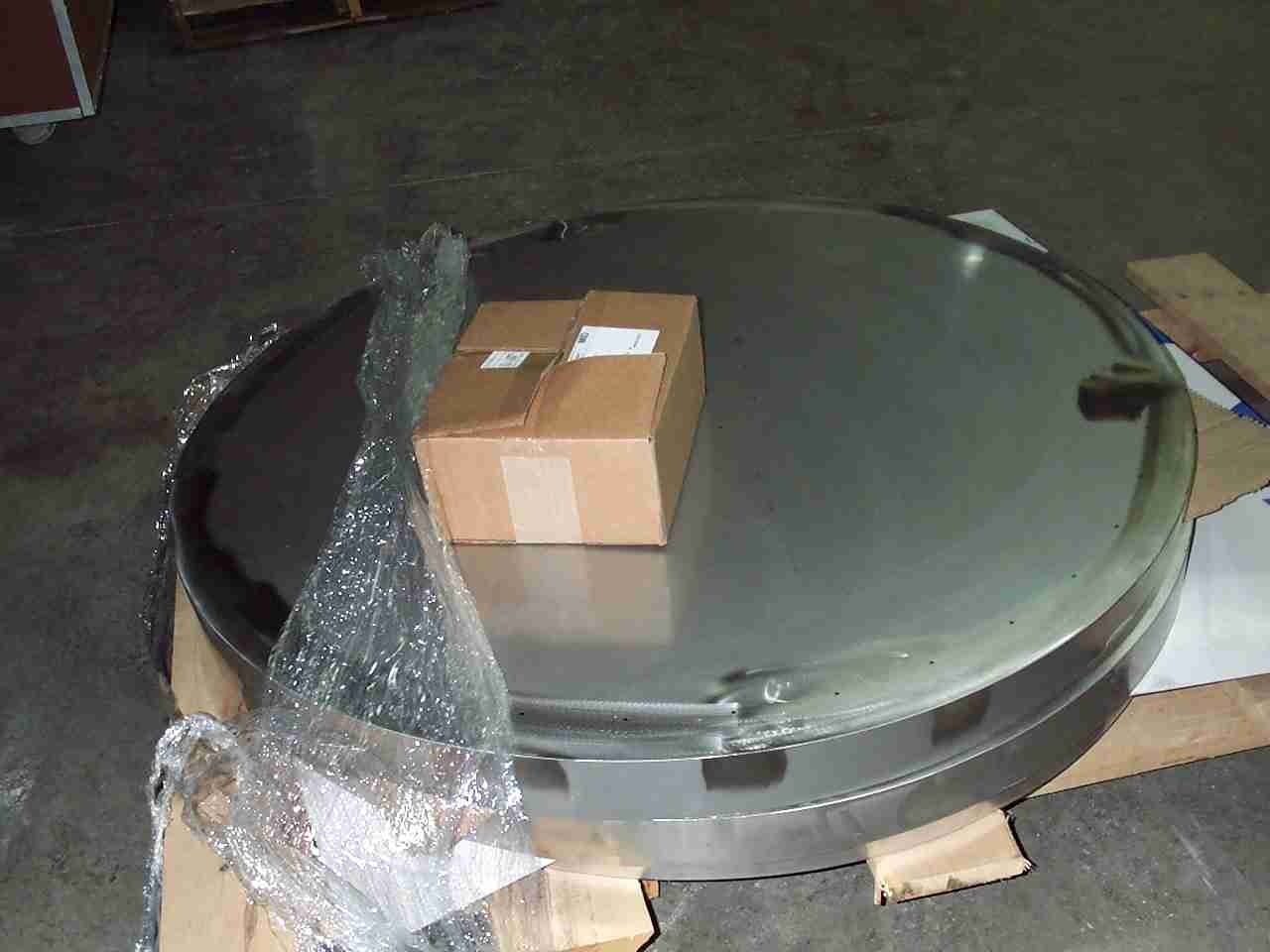

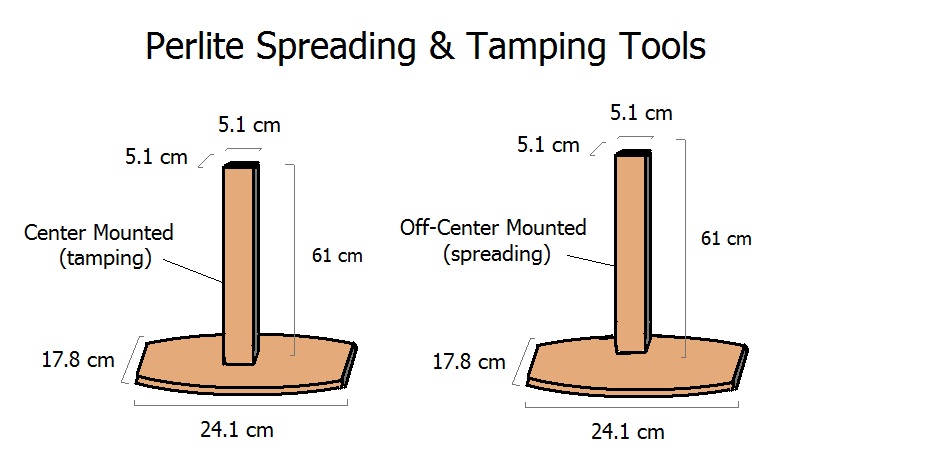
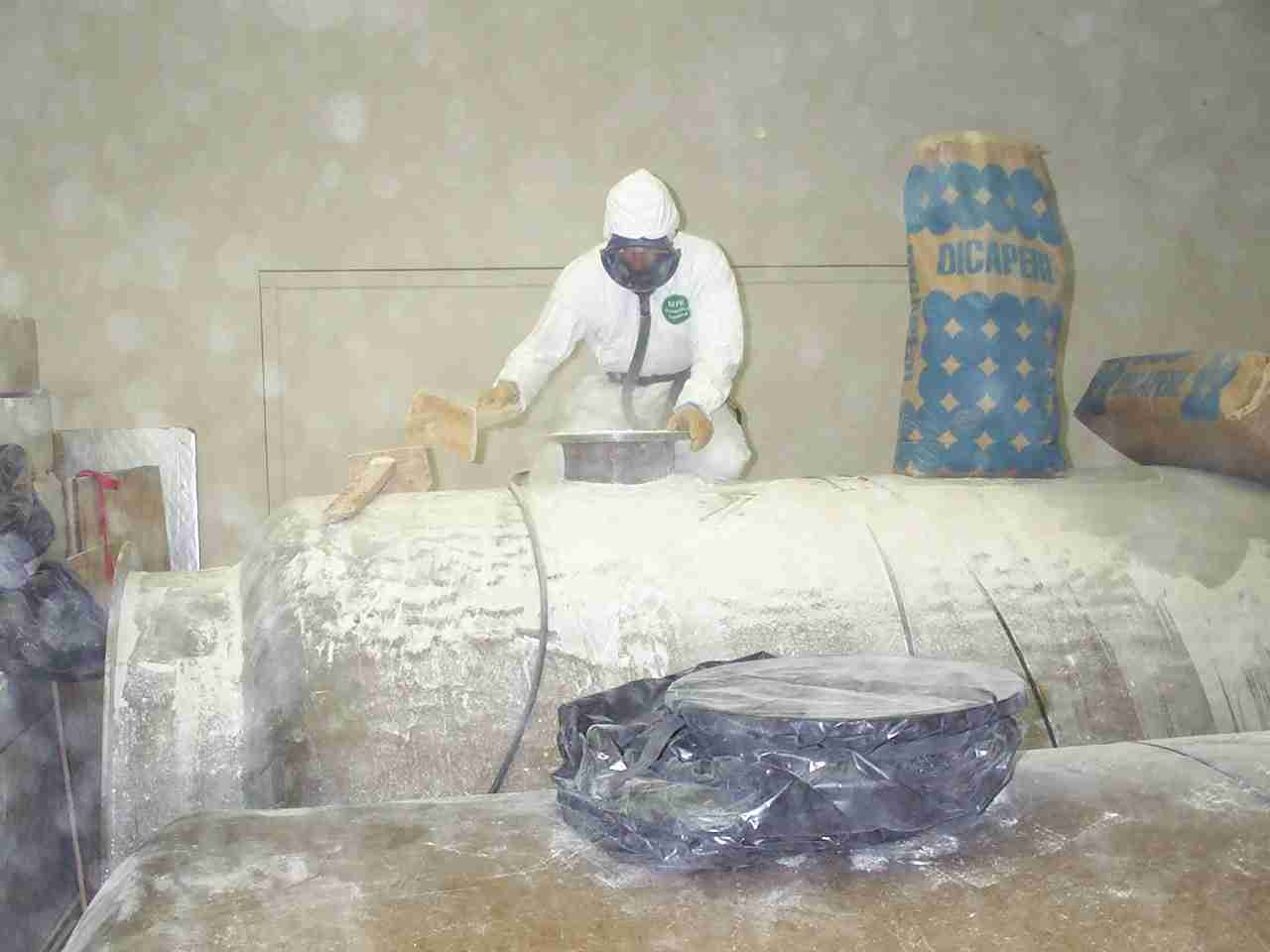
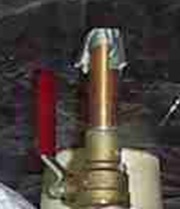
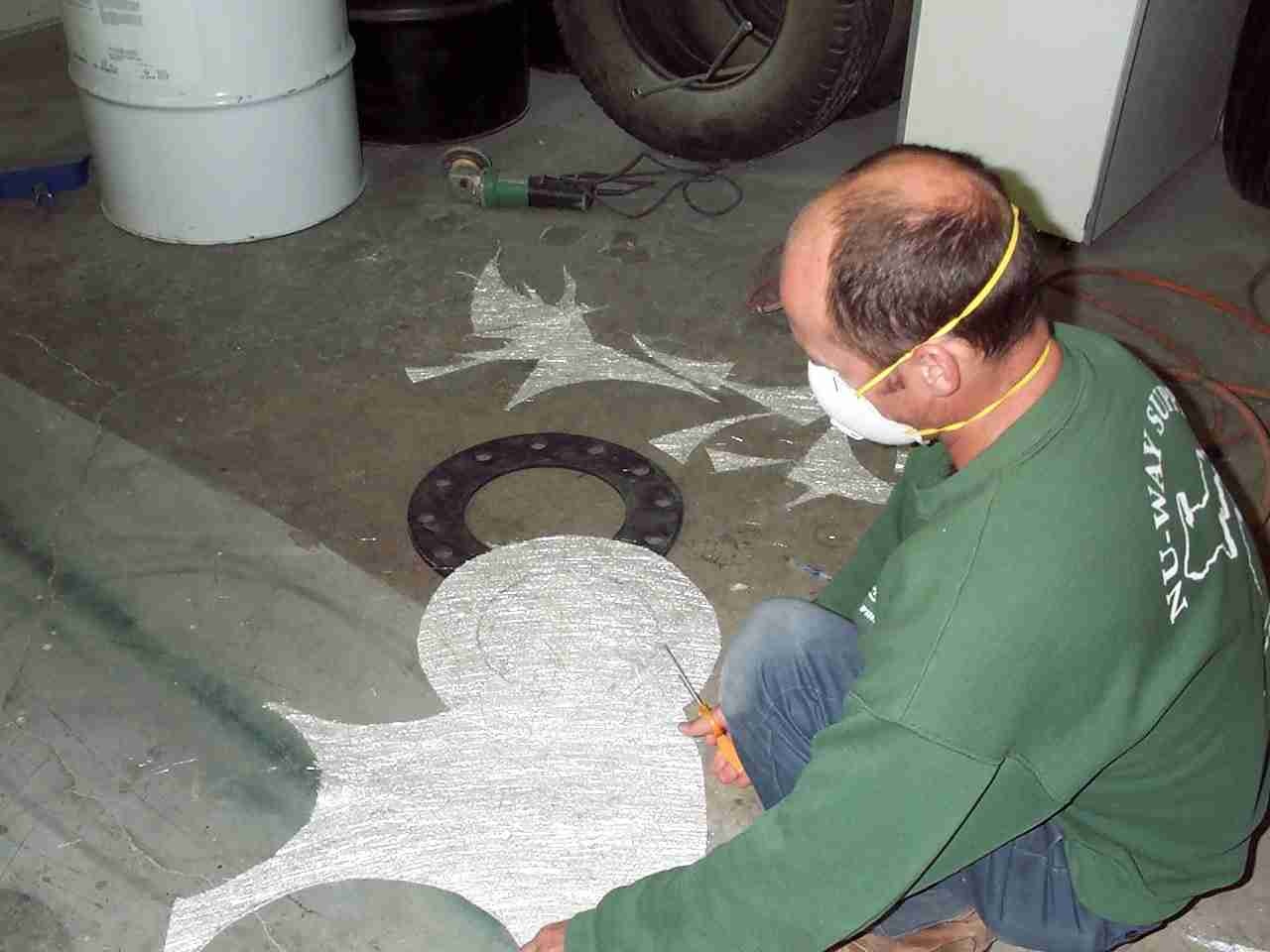
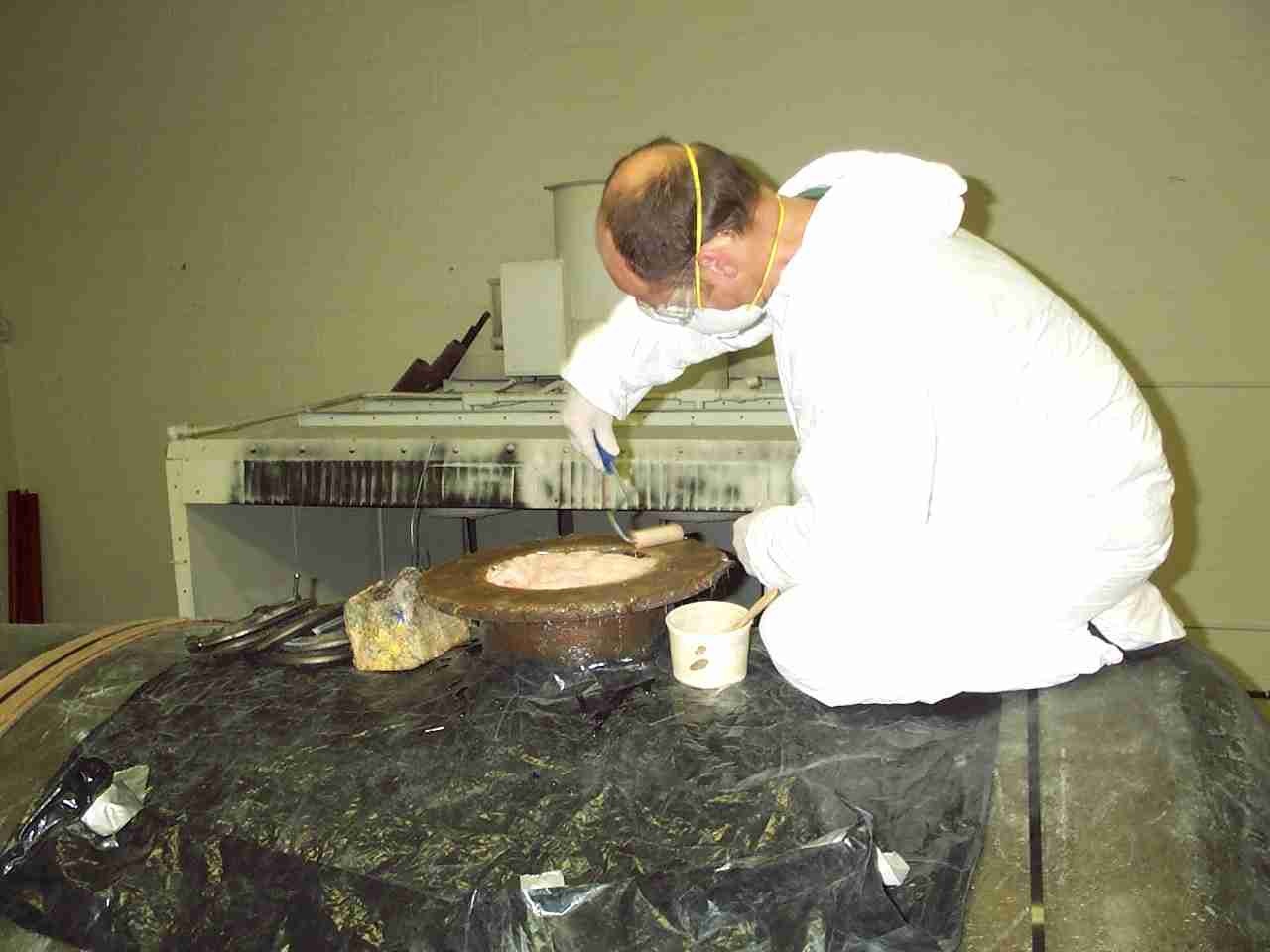
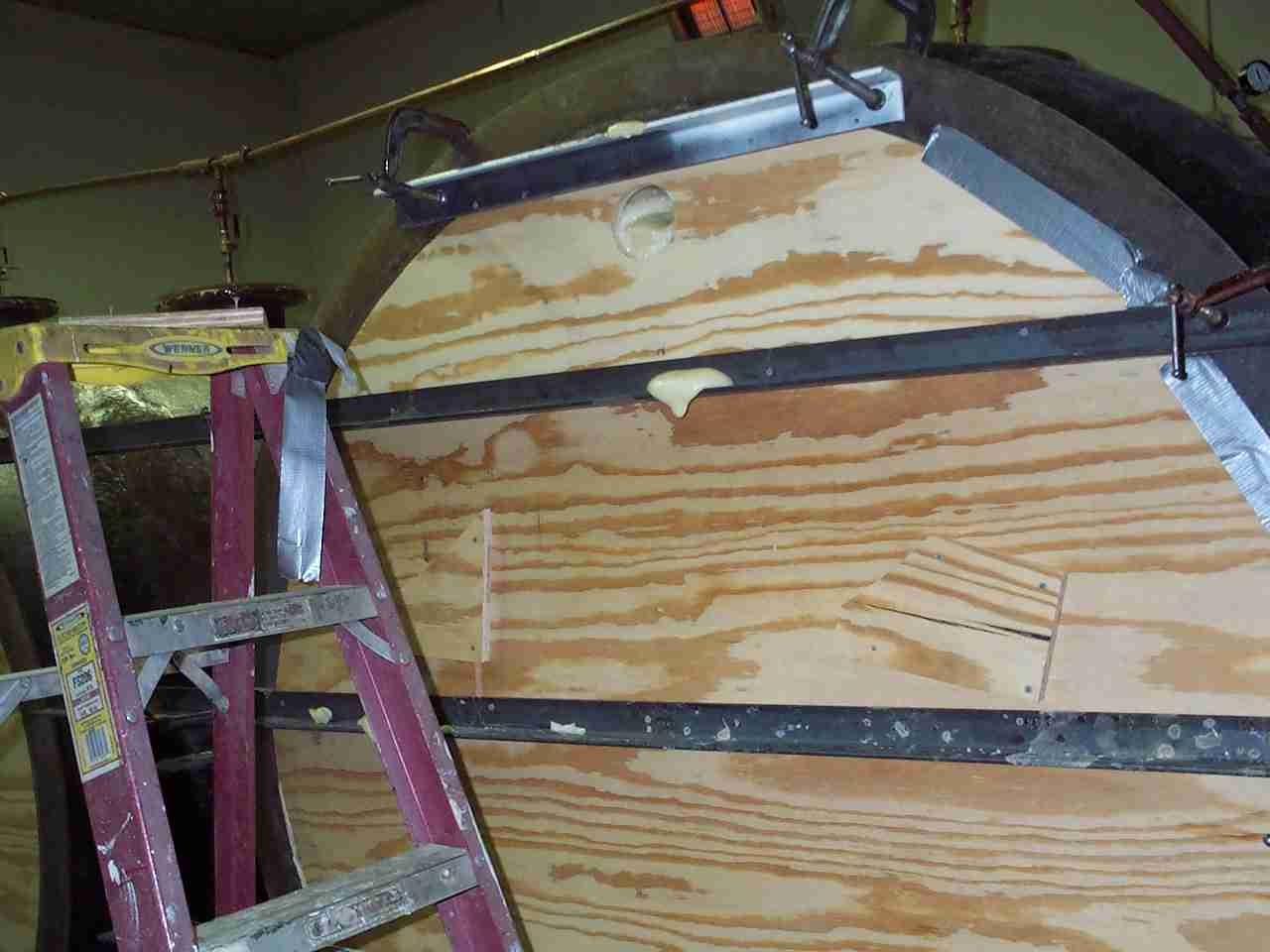
To Roger:If the LHC were not to discover anyinthg new, I agree entirely that we would not be in a happy situation ! It would probably mean the end of particle physics, irrespective of anyinthg else.I disagree, however, on the fact that the LHC was sold to discover the Higgs. It was sold as an extraordinary step in energy towards discovery of TeV new physics. Let’s put it right: as repeatedly demonstrated in the past 15 years, an e+e- collider with energy of the order of mH + mZ + 30 GeV would be in much better a position to discover and finely study the Higgs boson than any hadron machine ever. In this perspective, the sooner the discovery is confirmed, the better !(Note: I am not a TeVatron experimenter, but an LHC experimenter, former LEP experimenter)